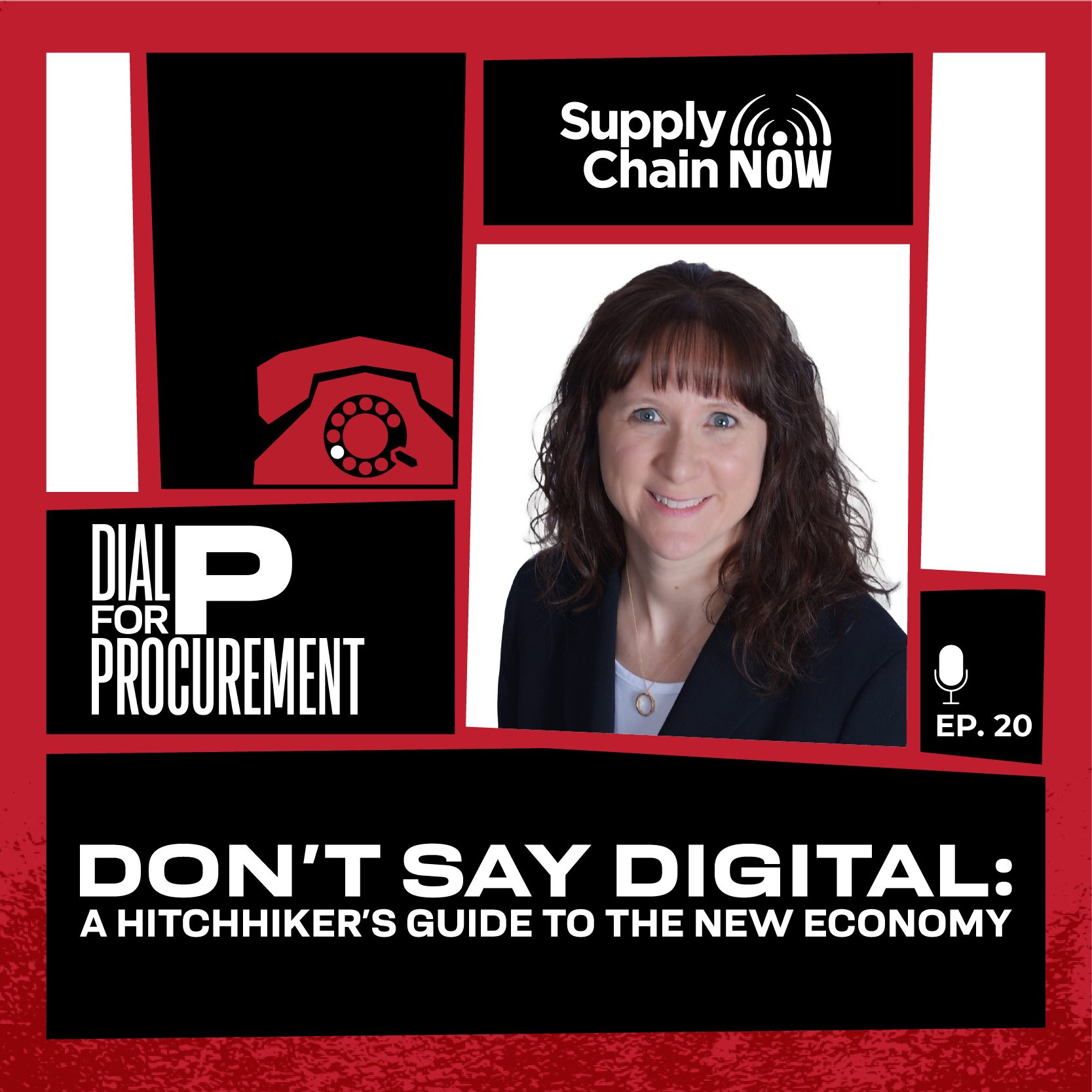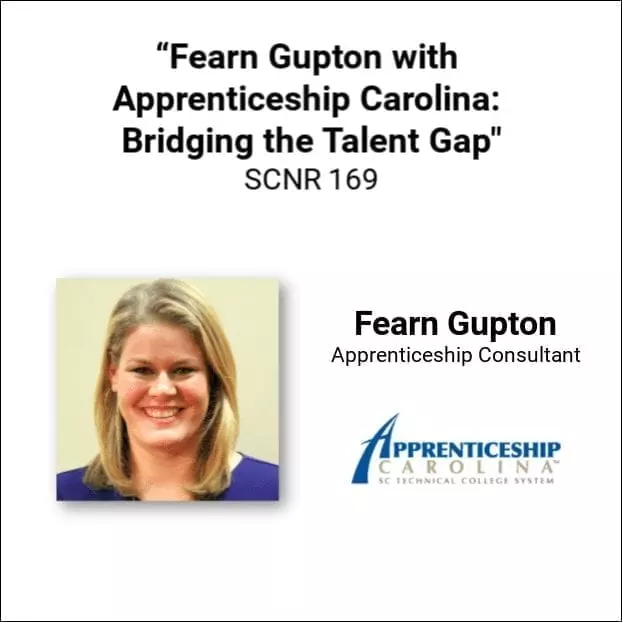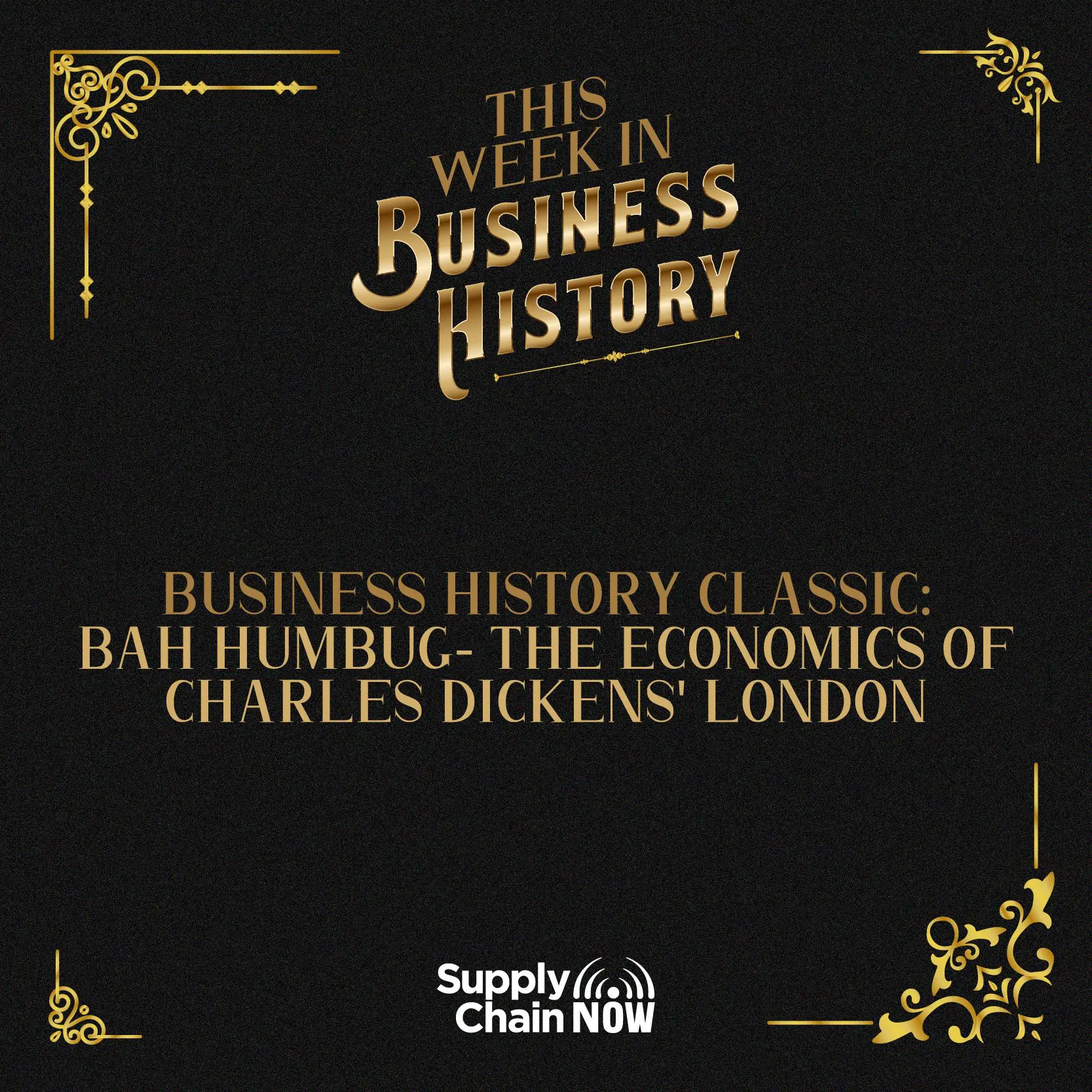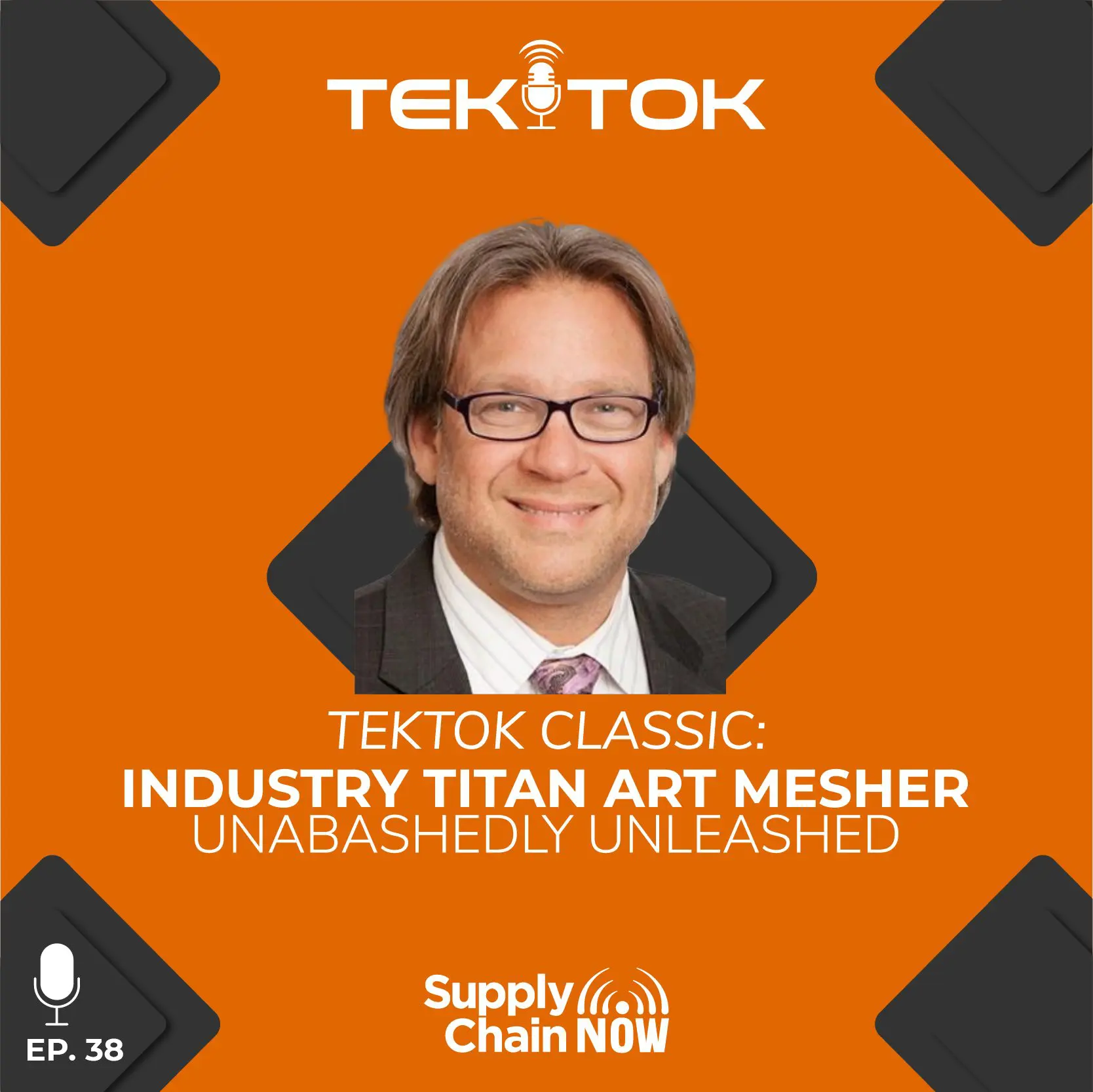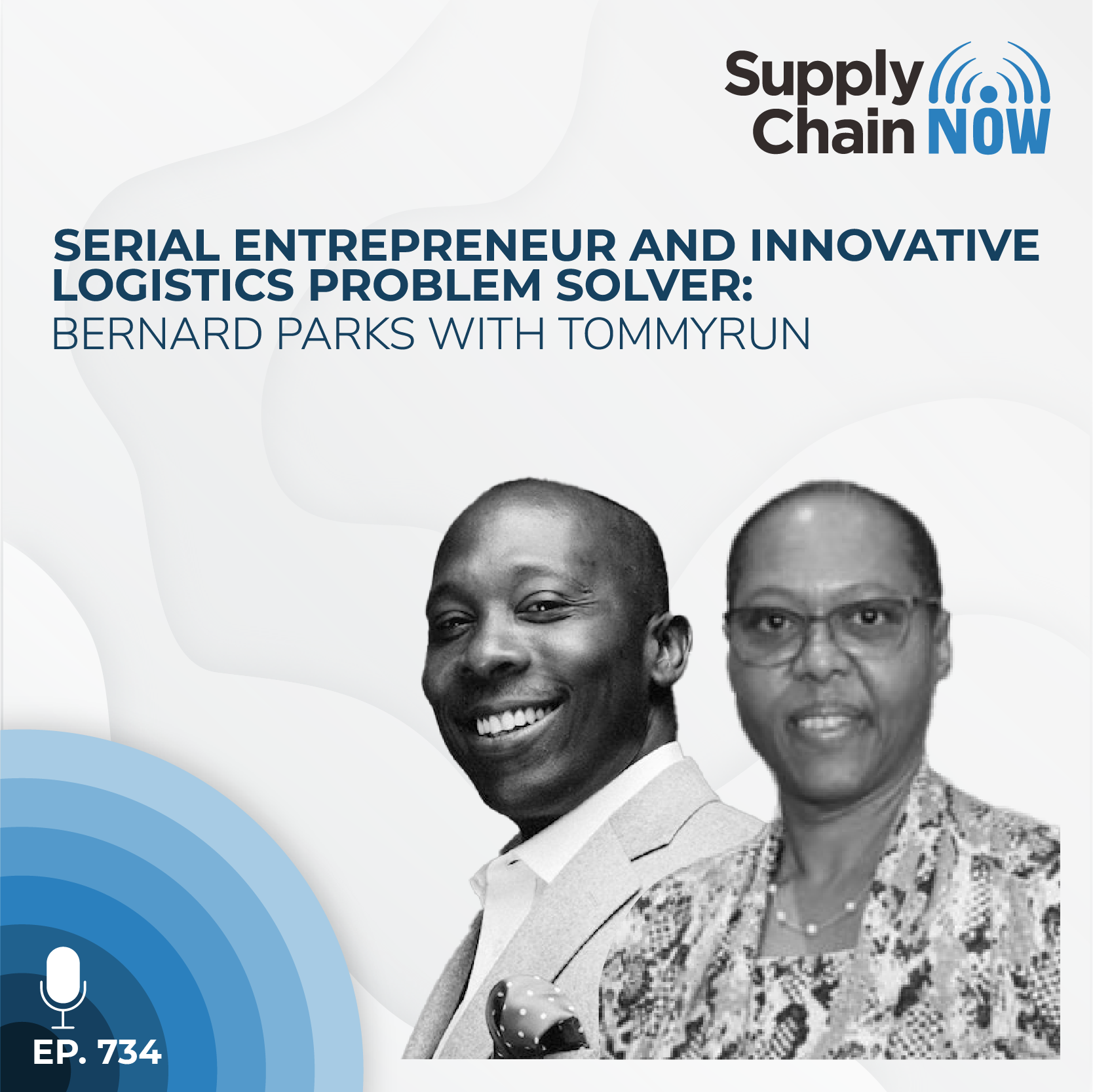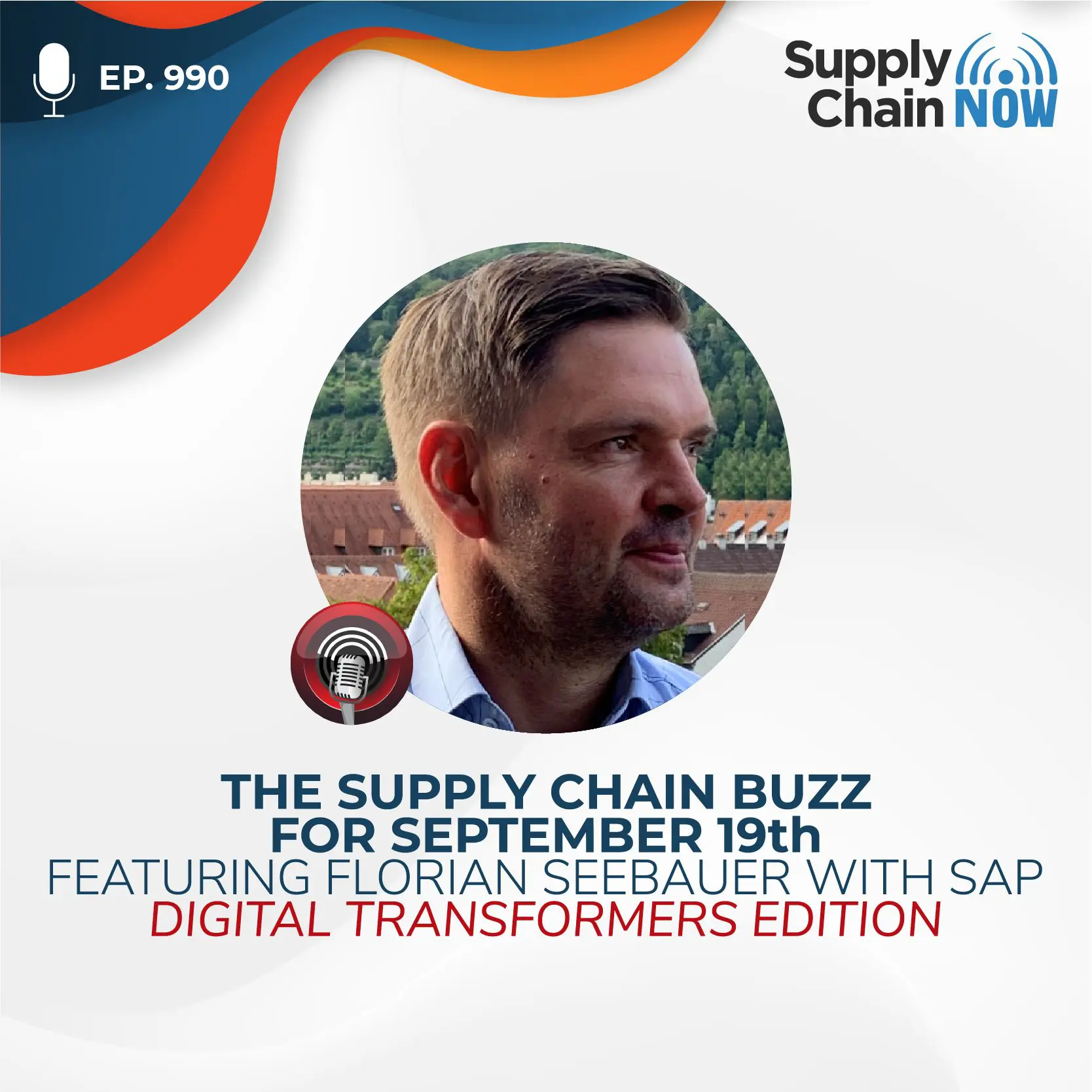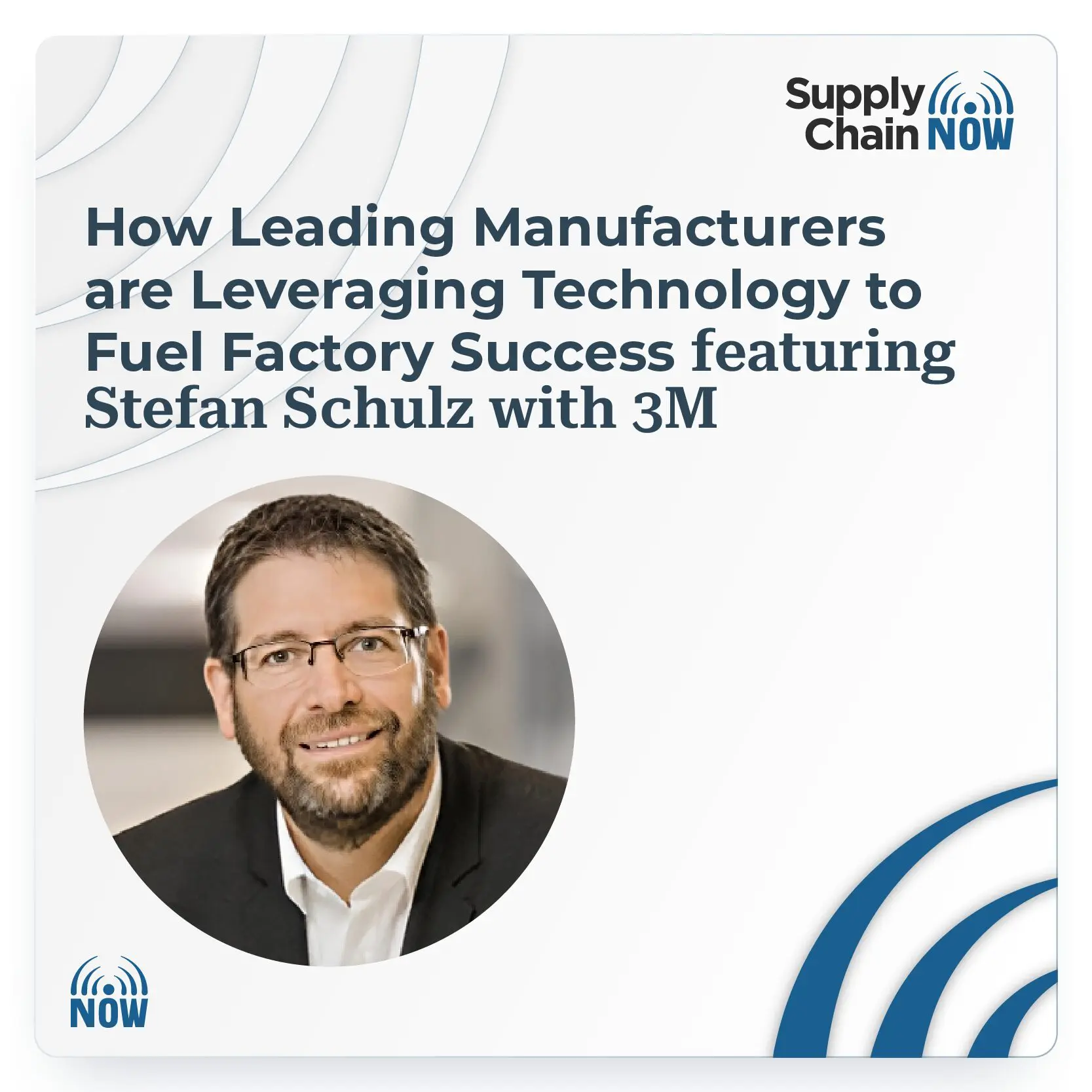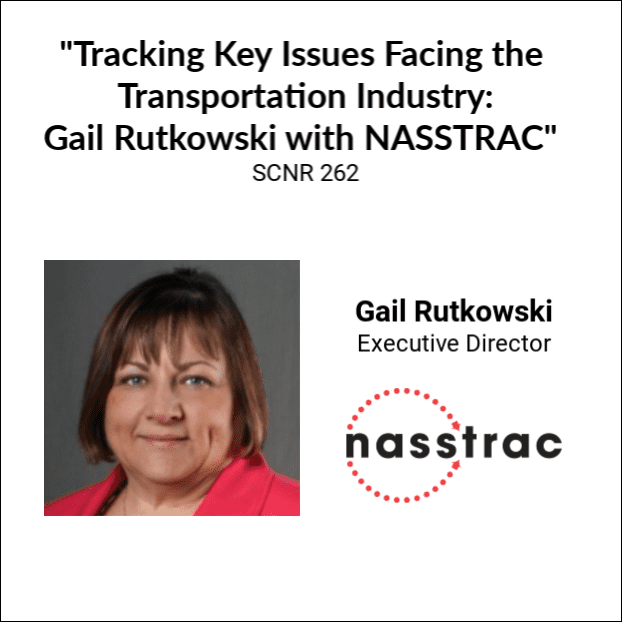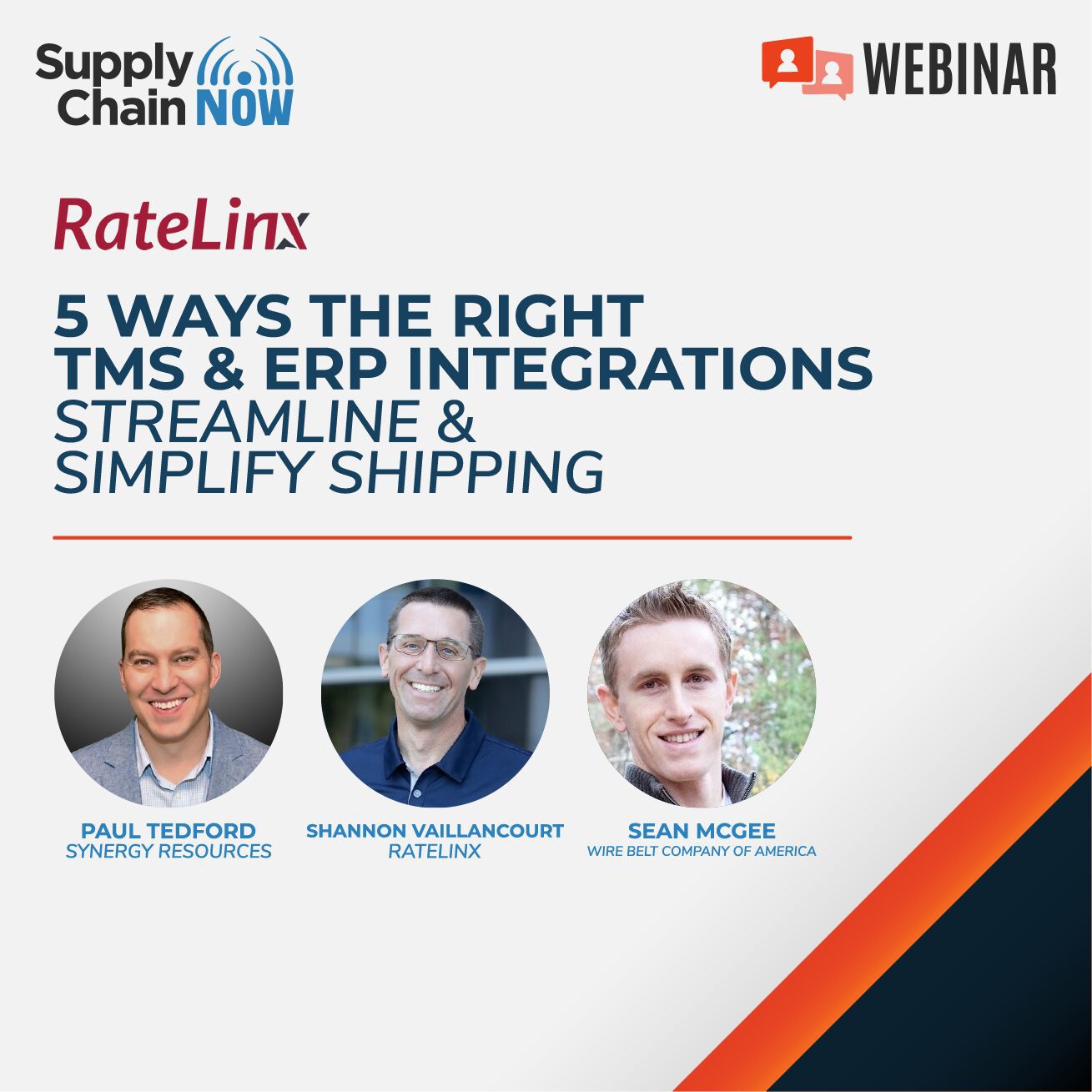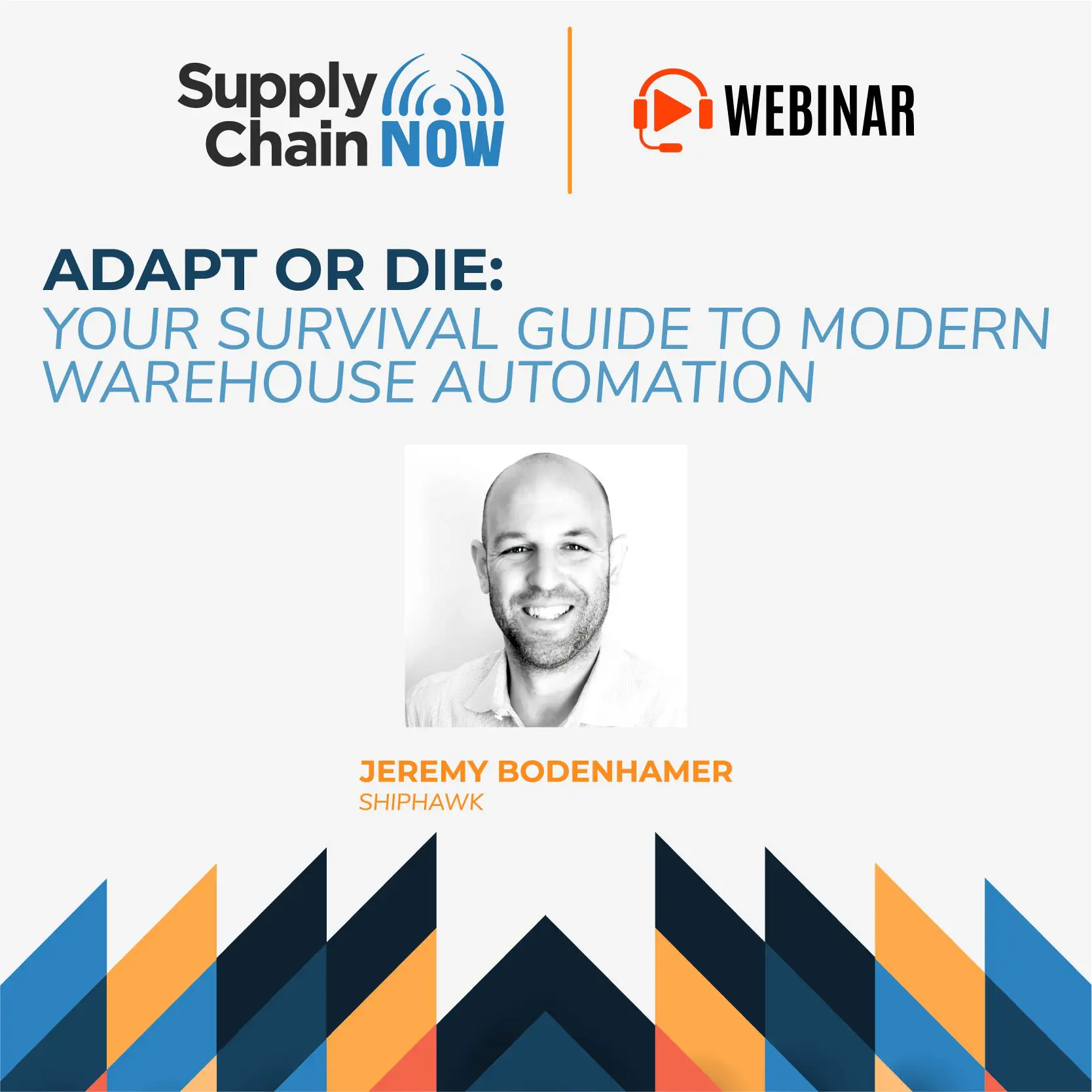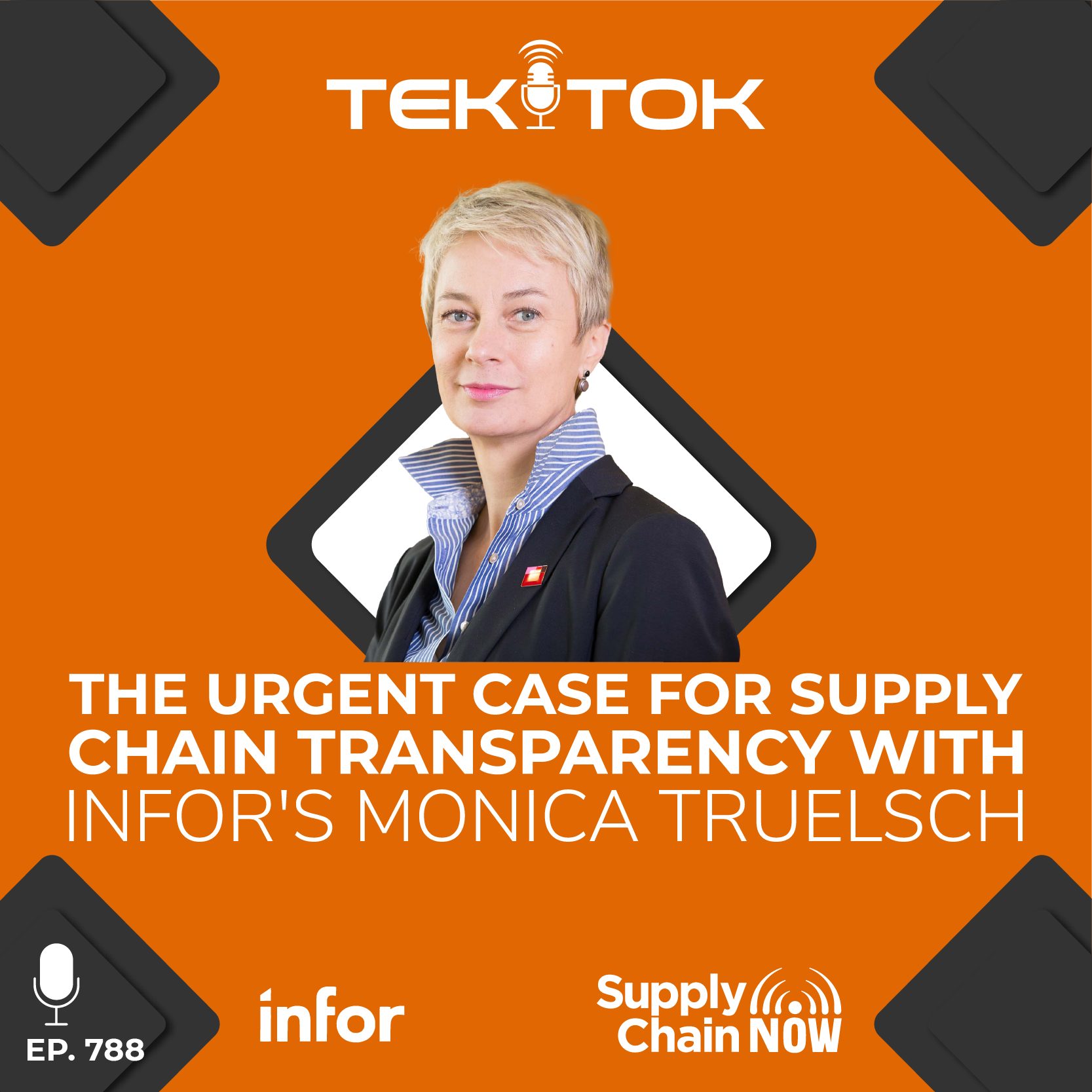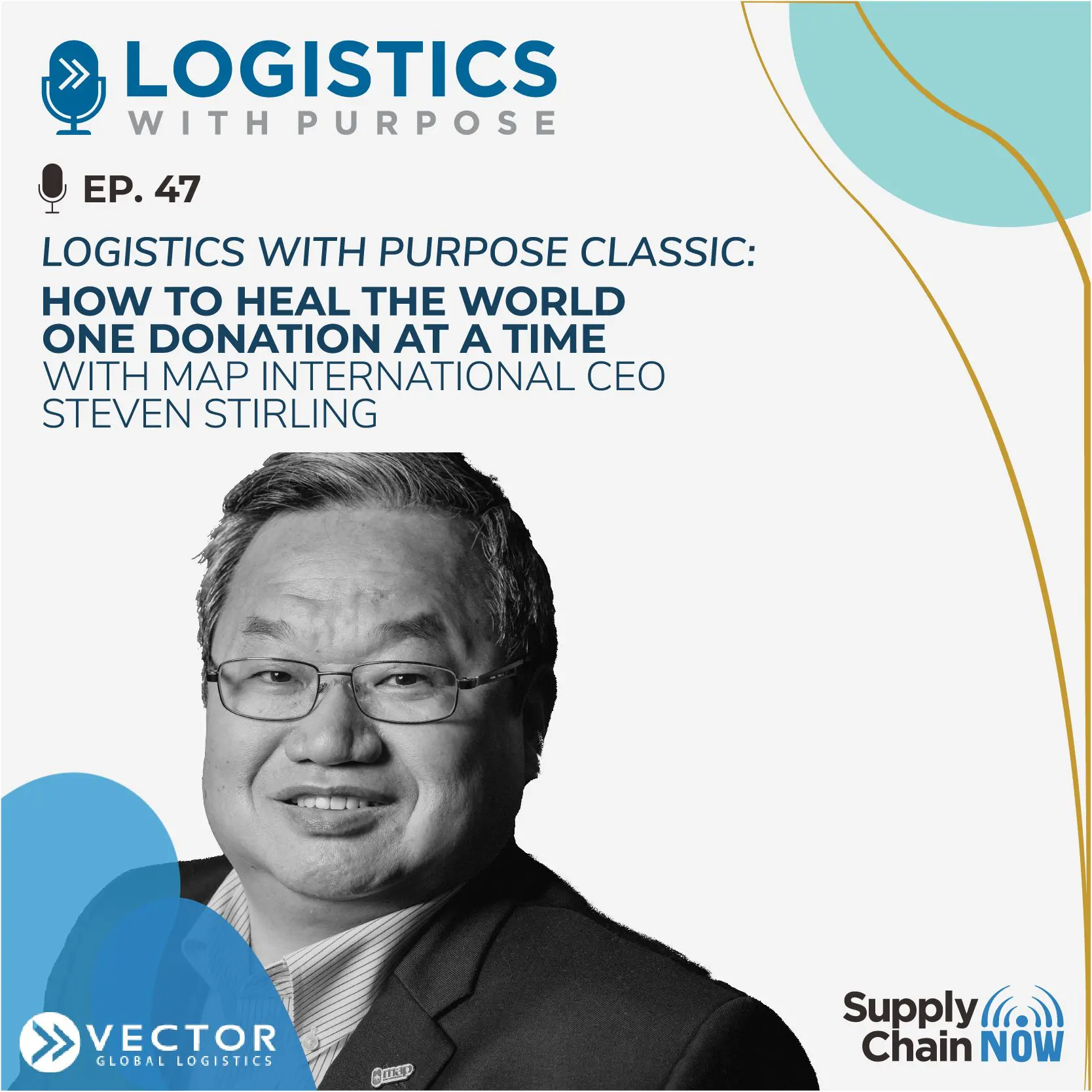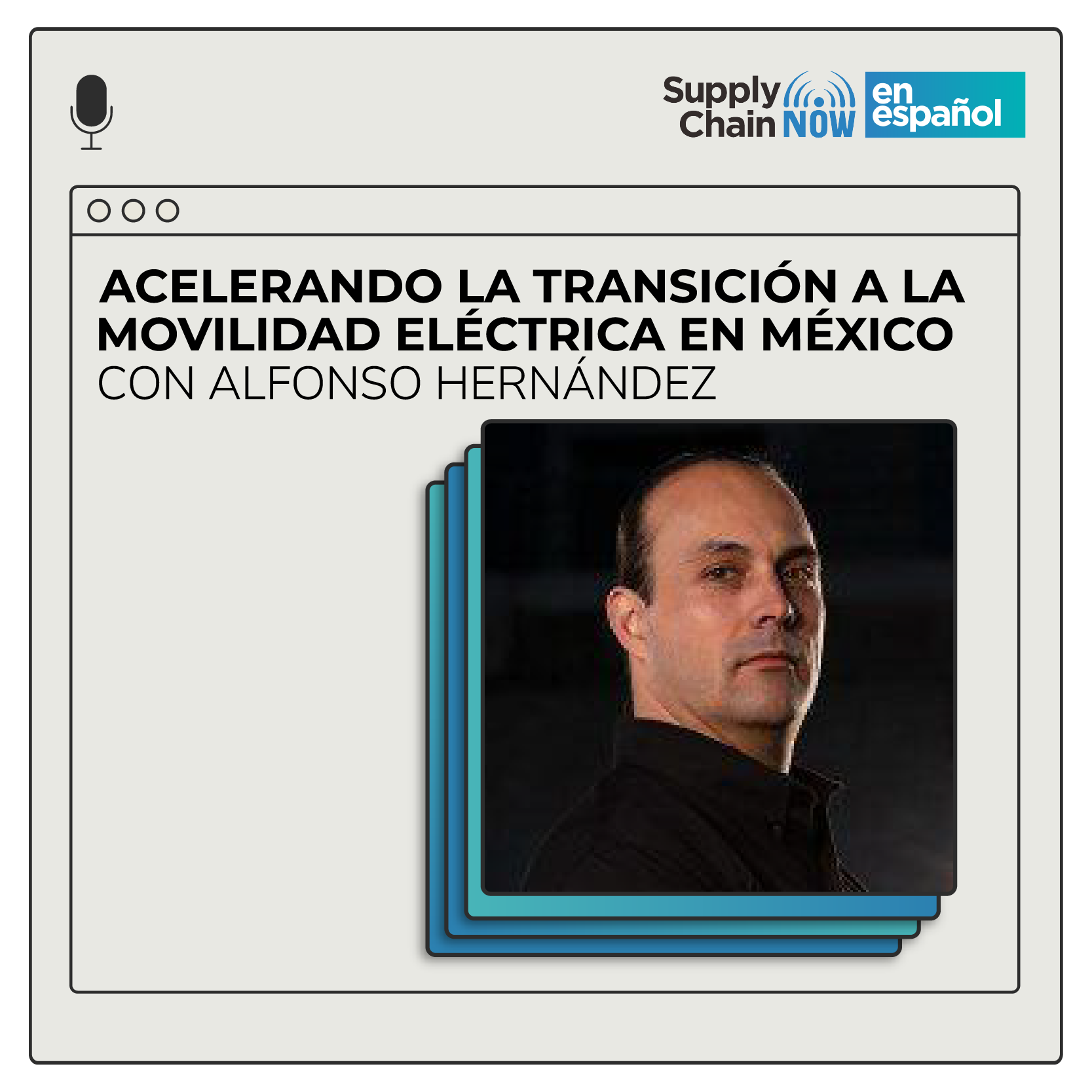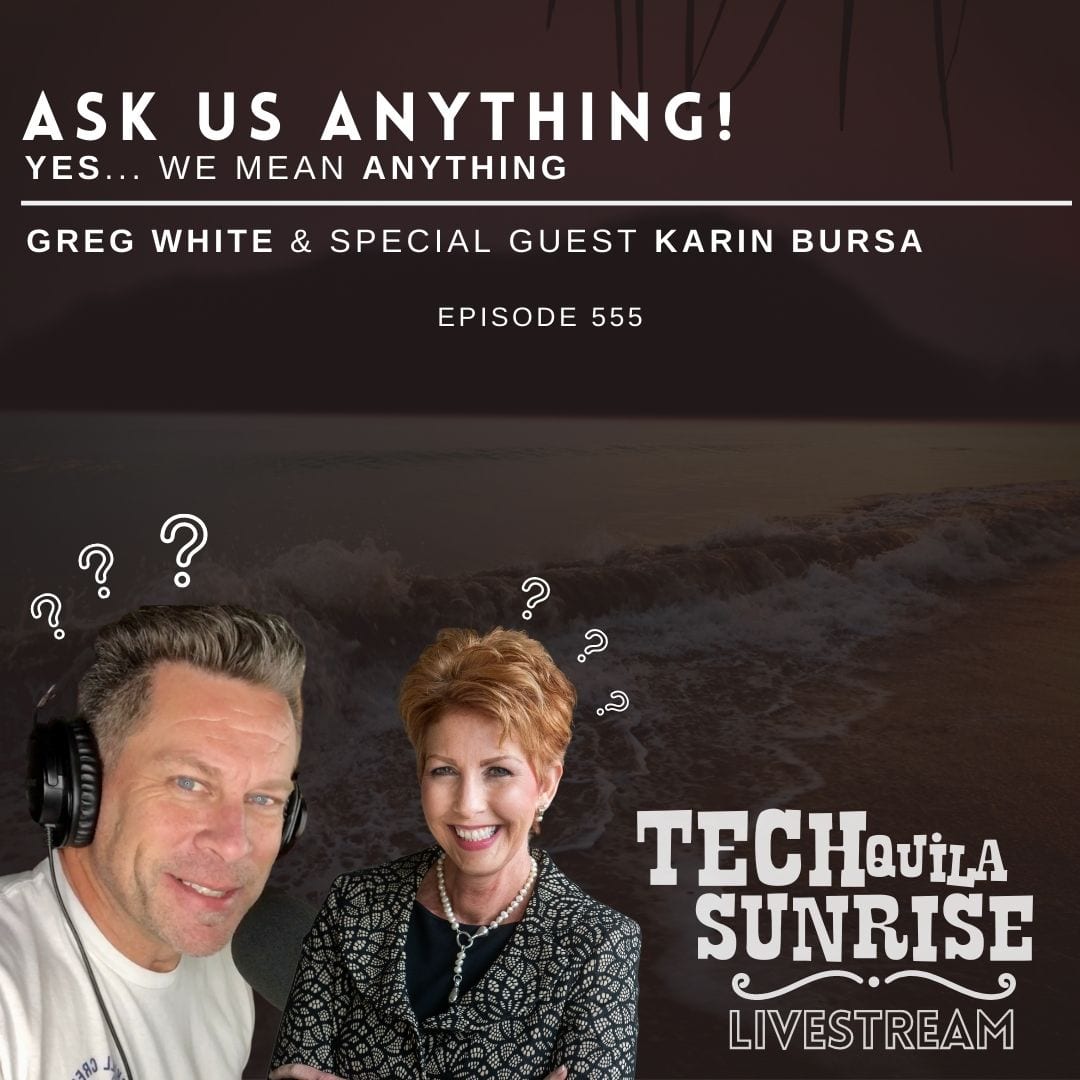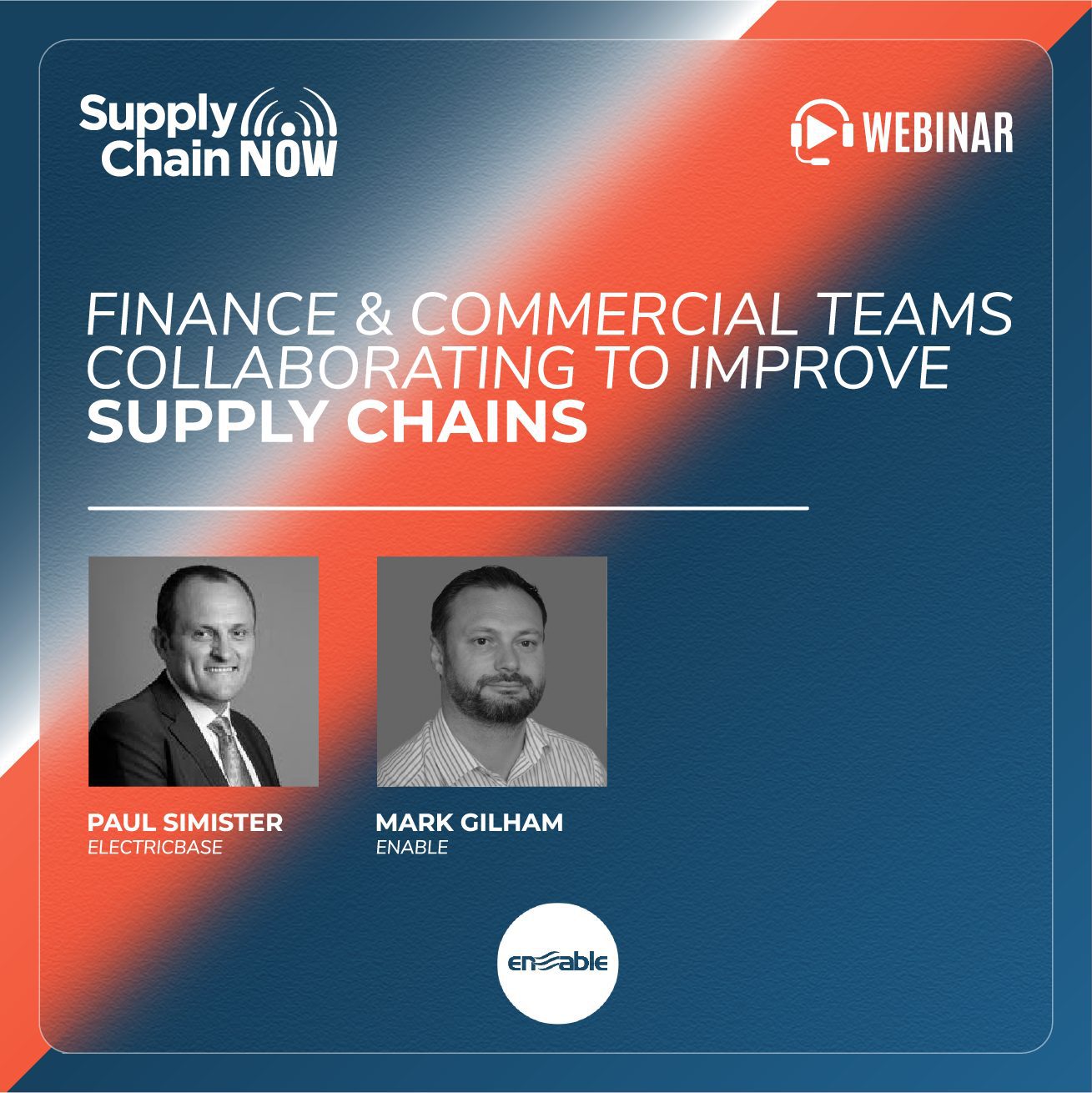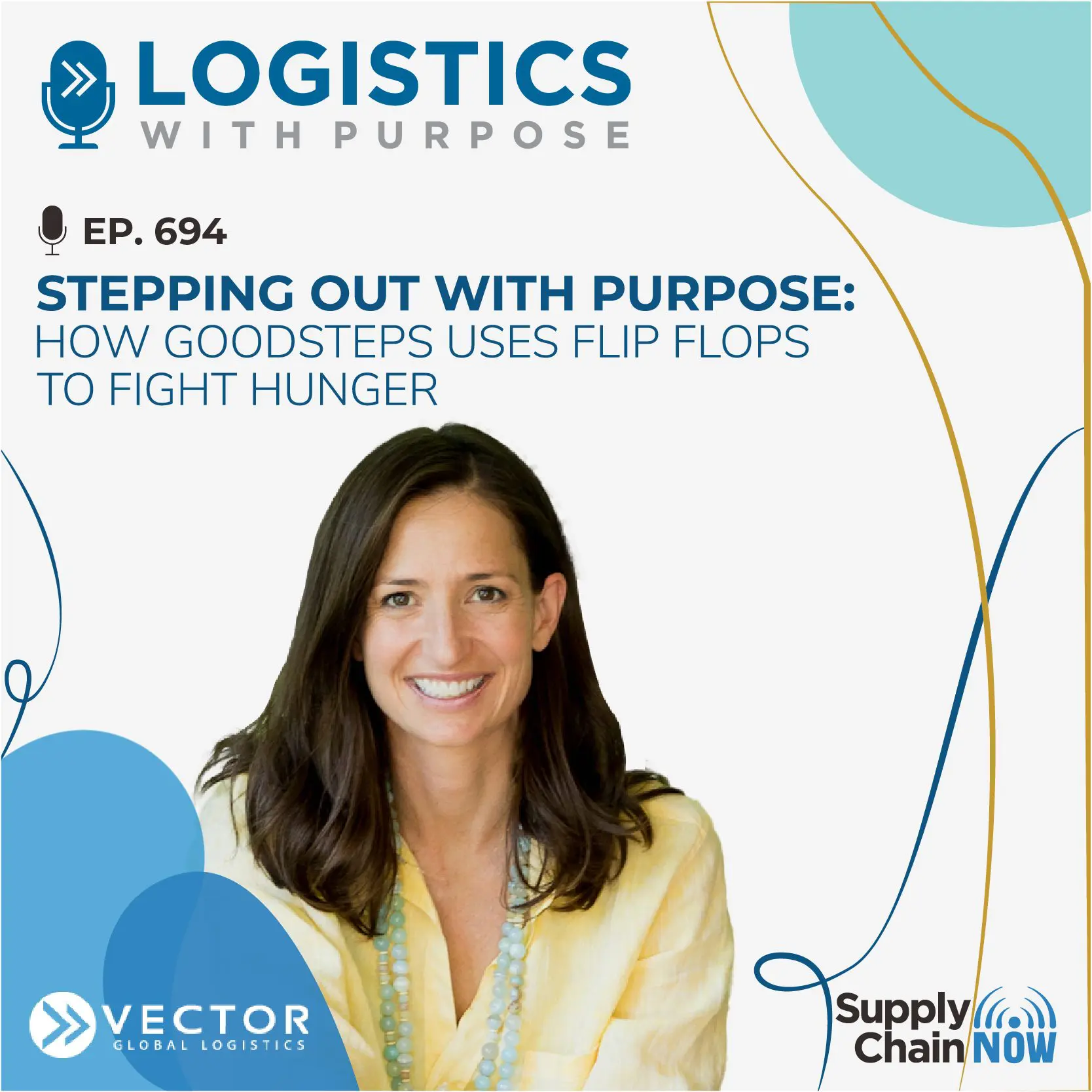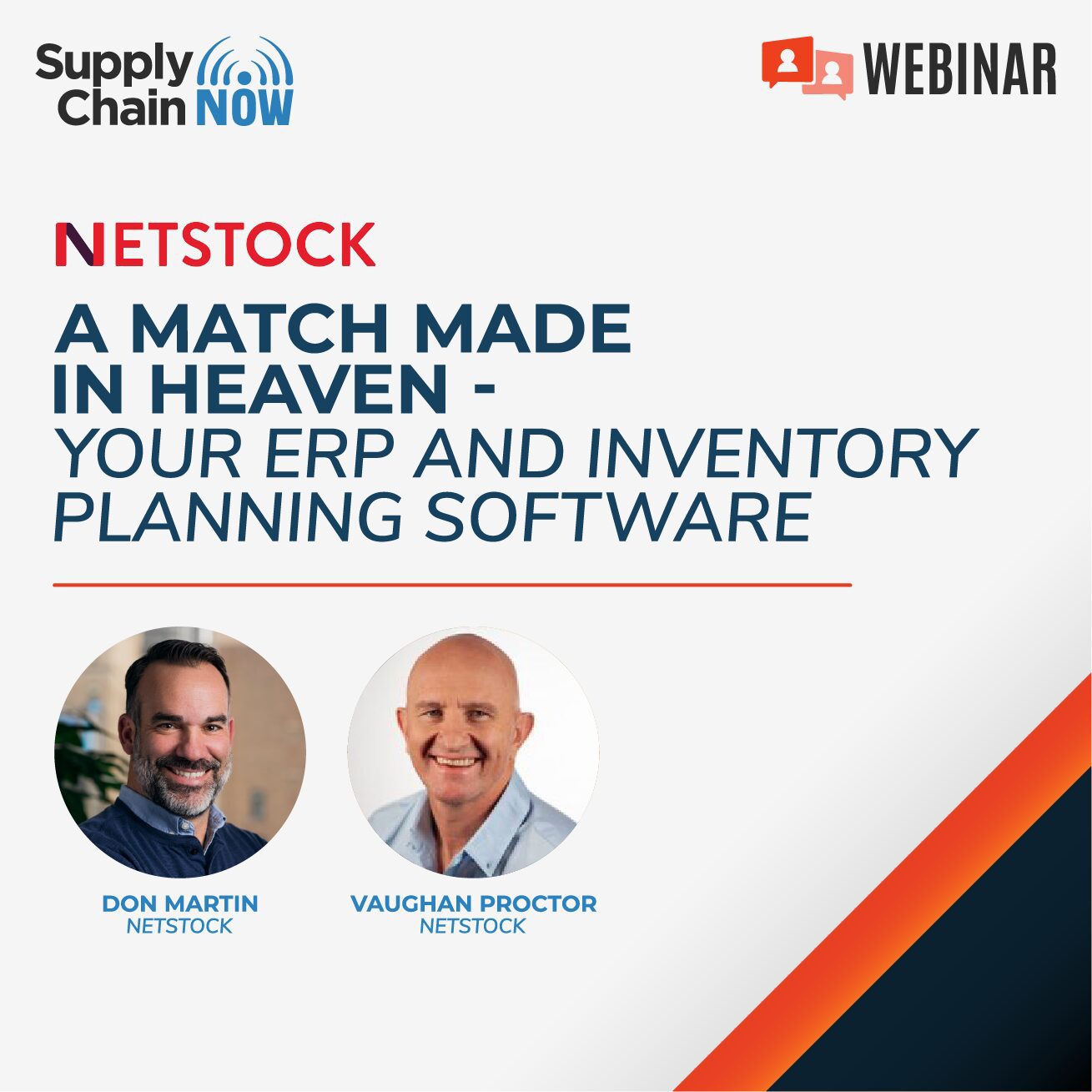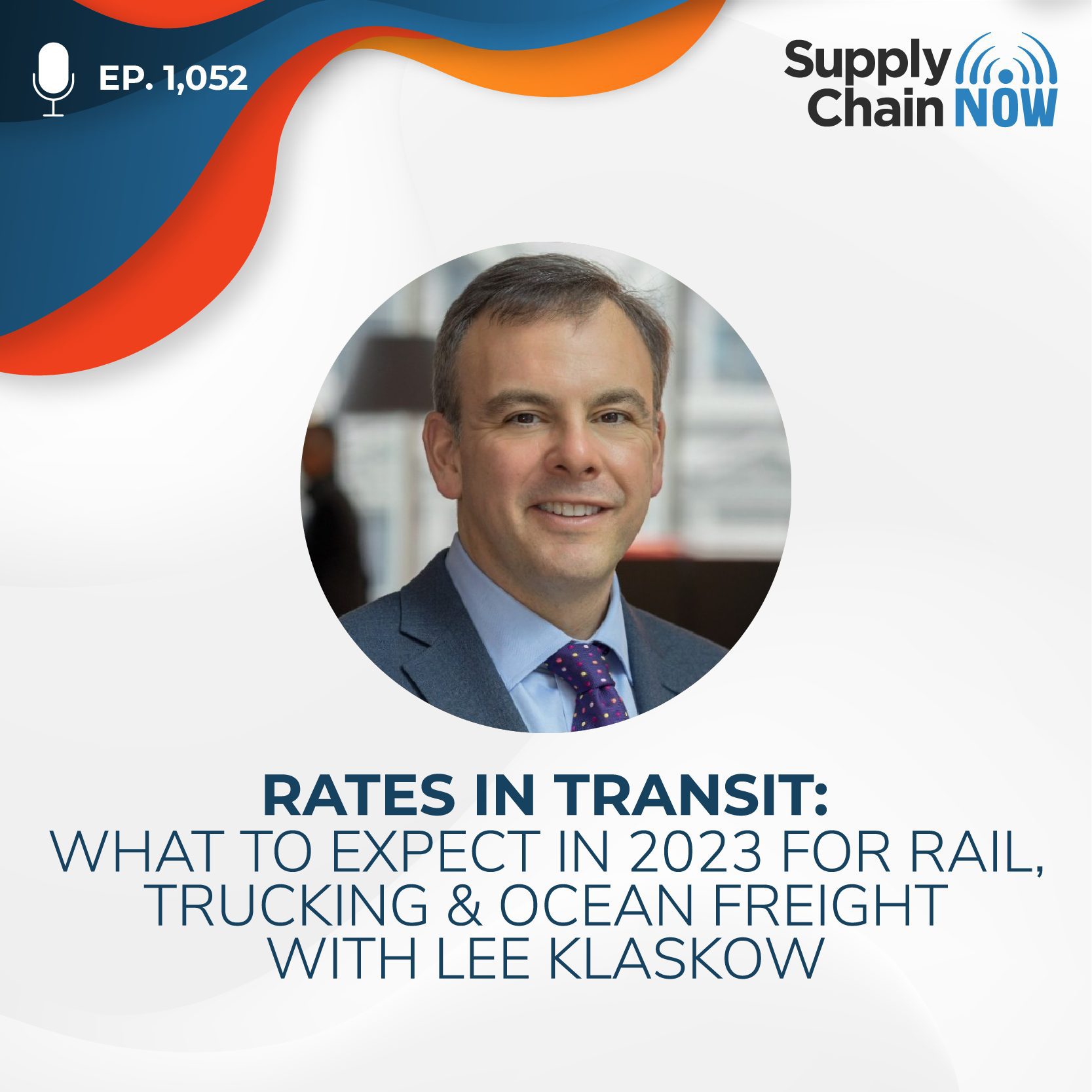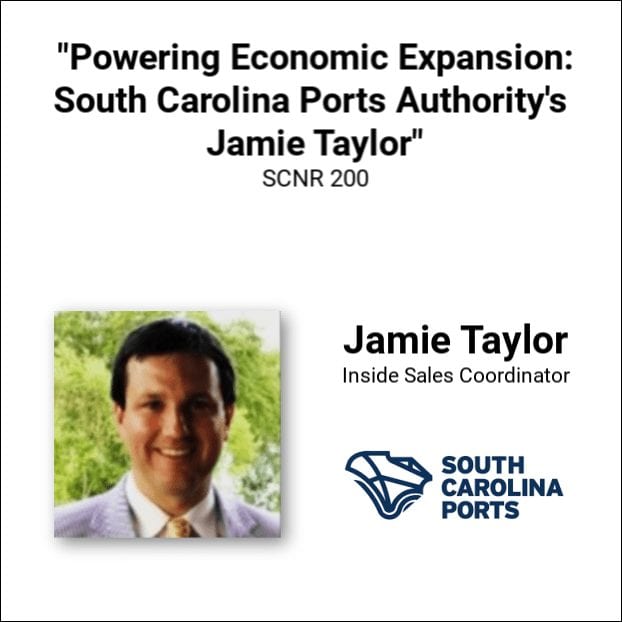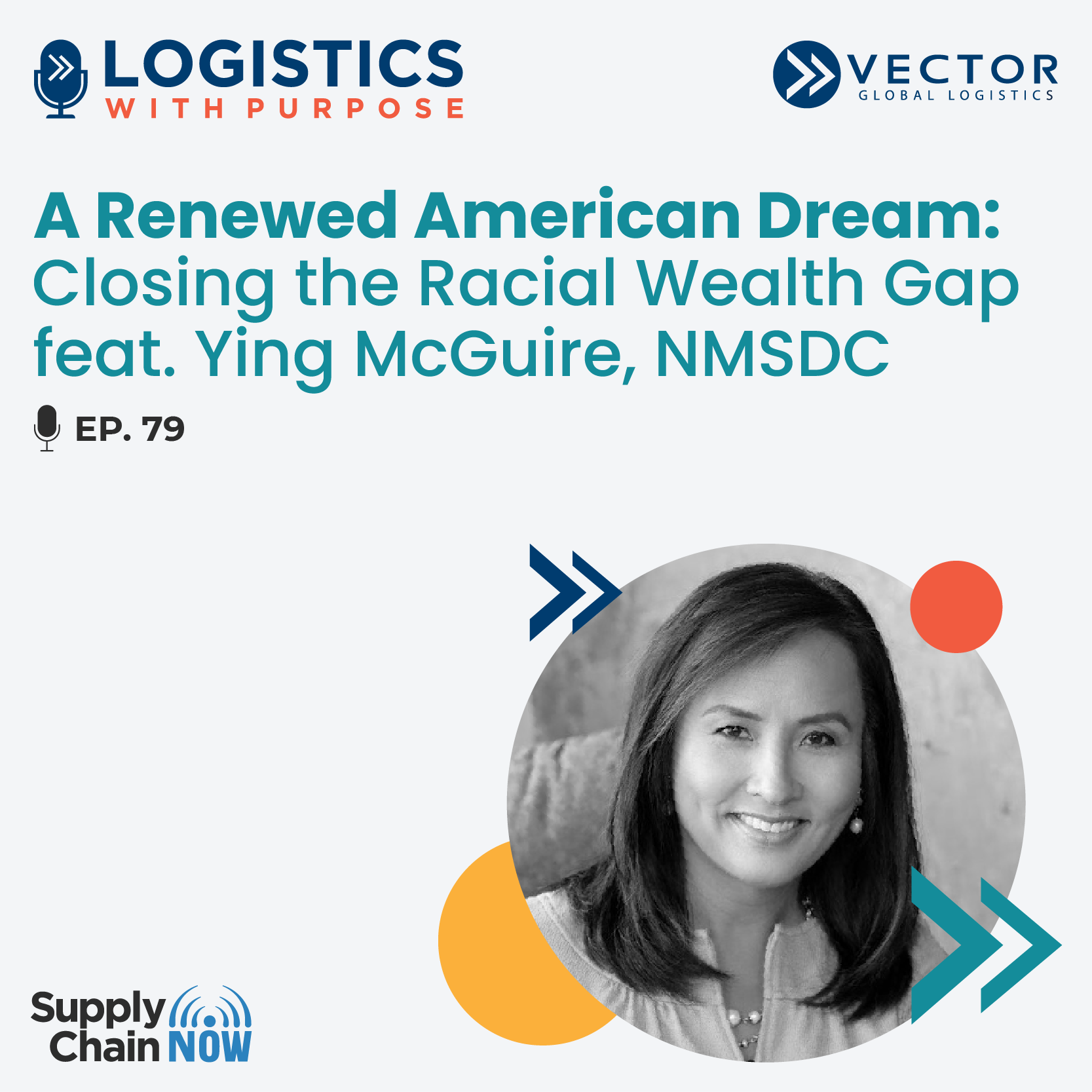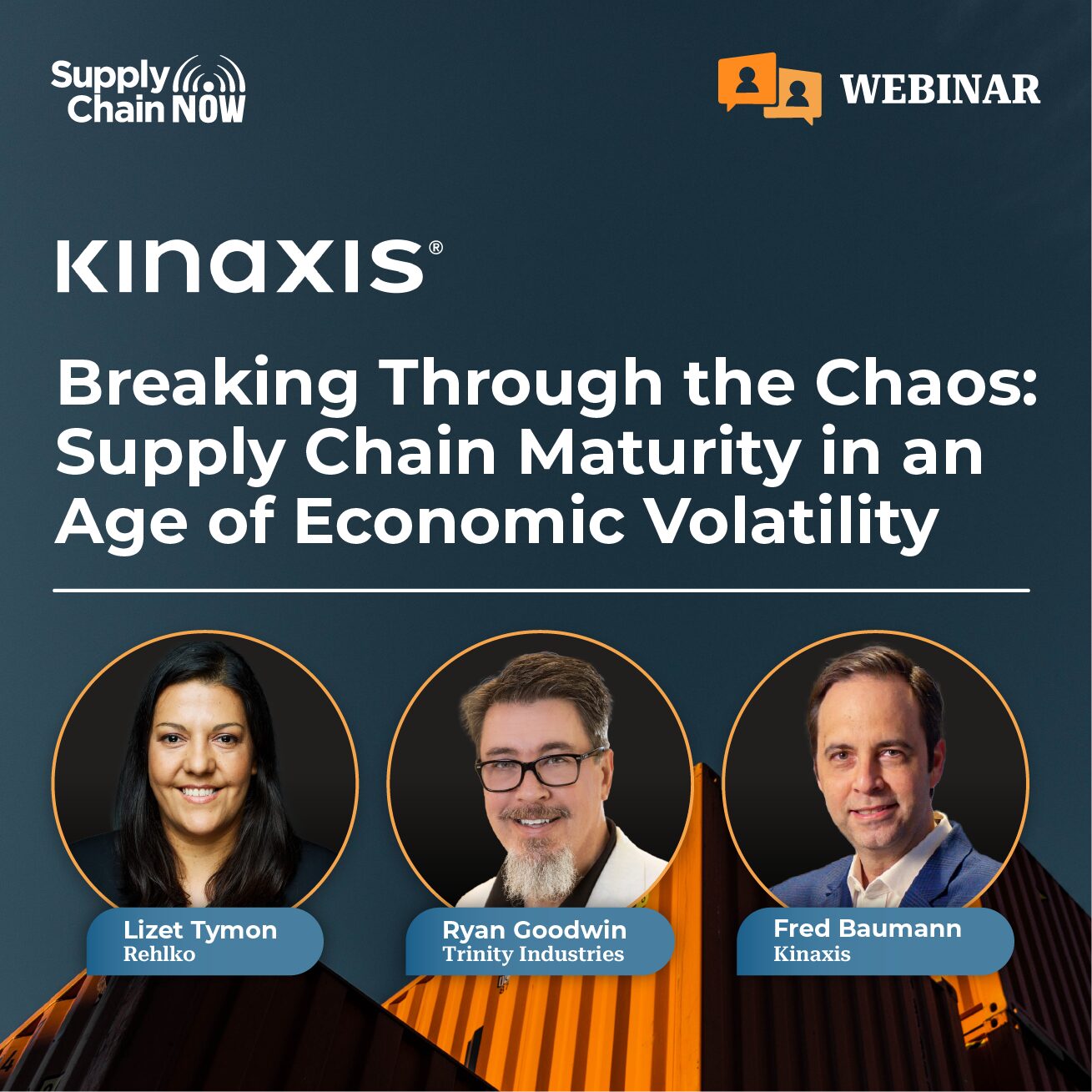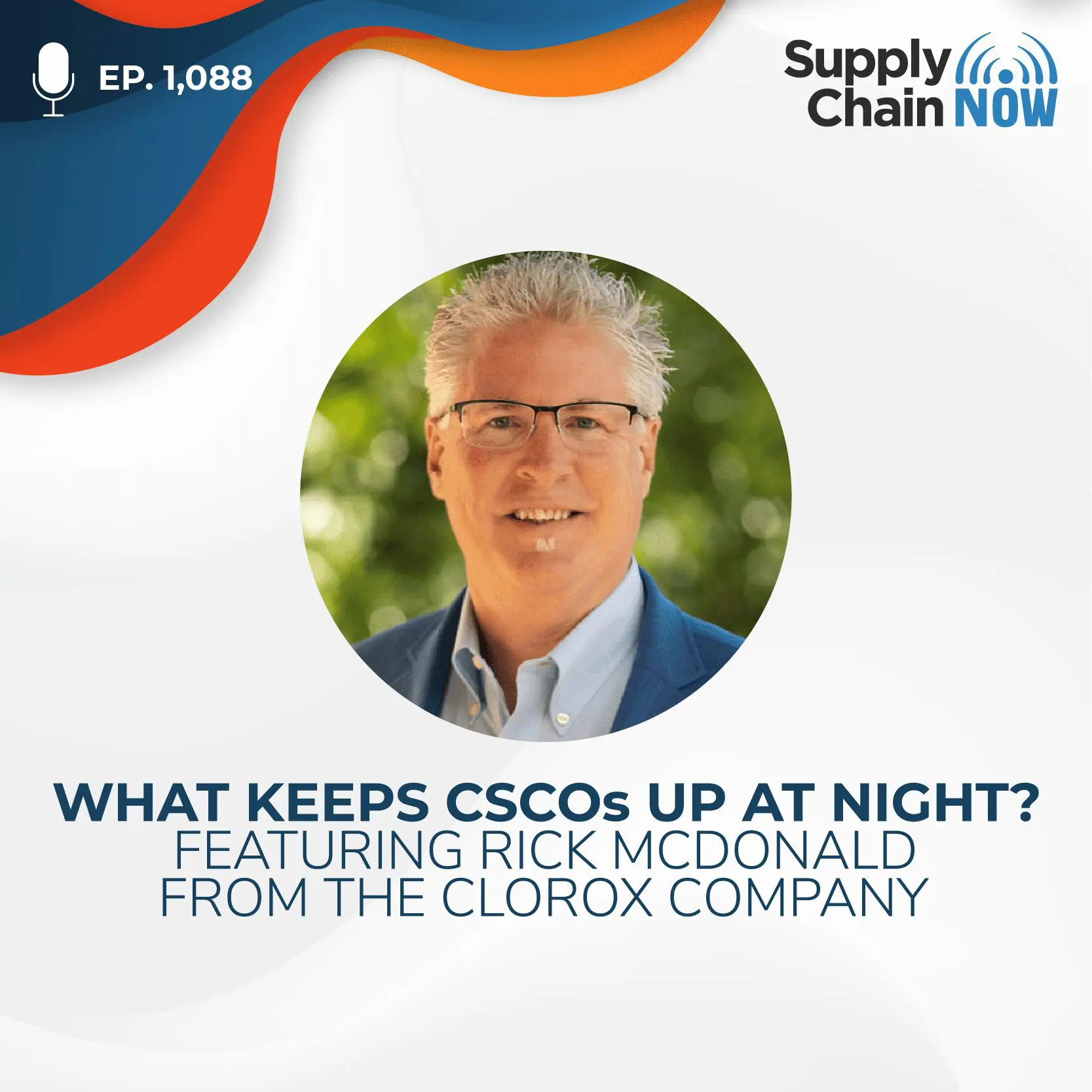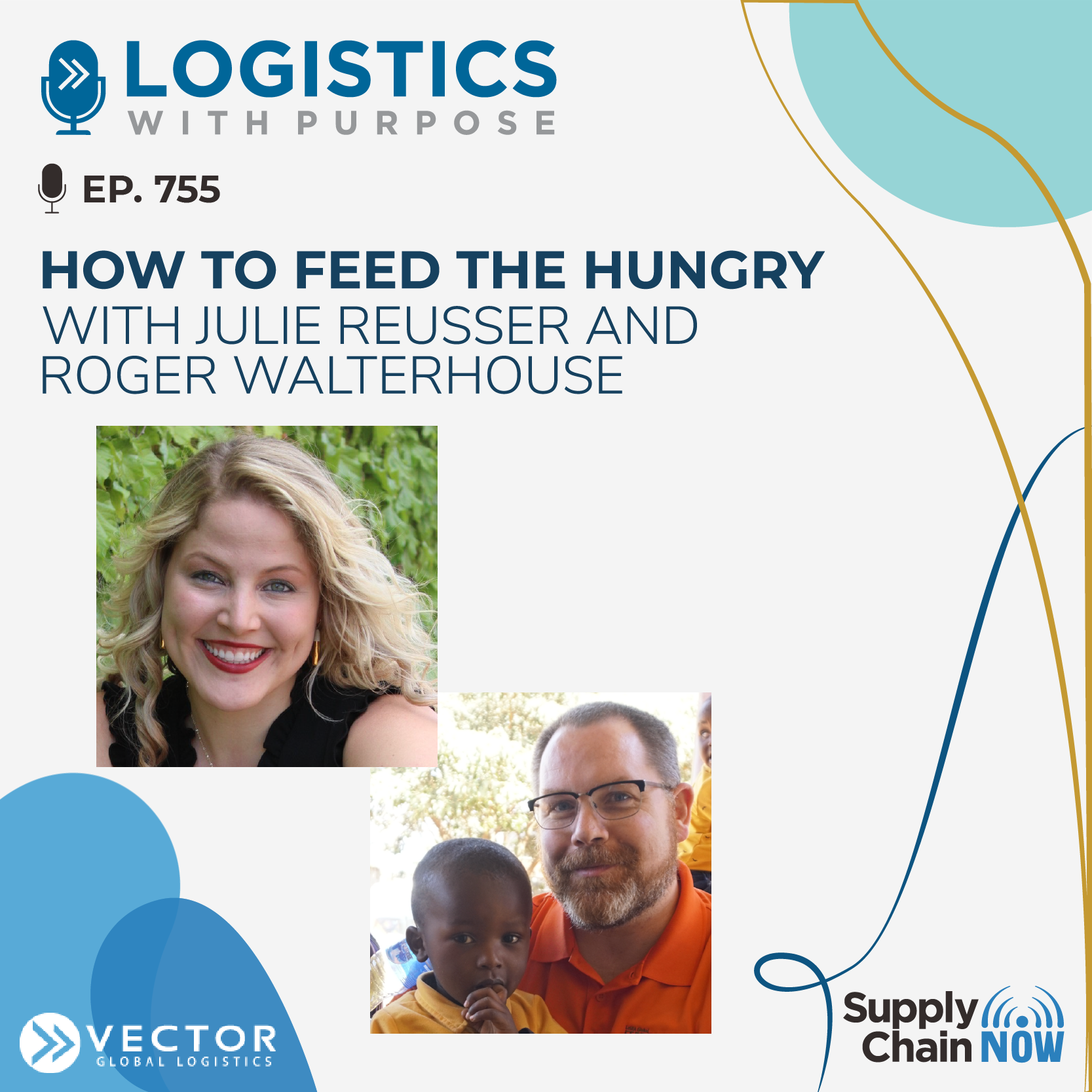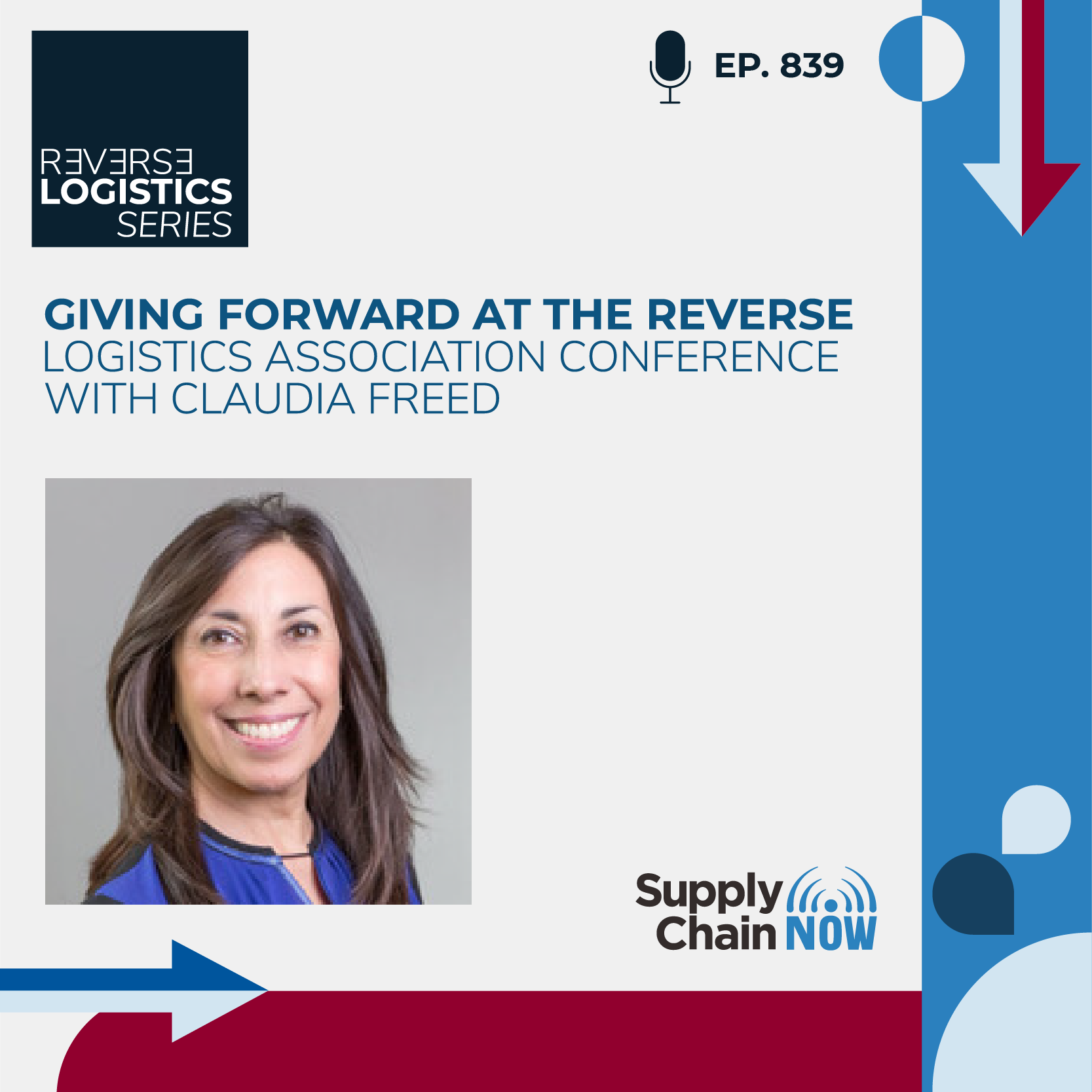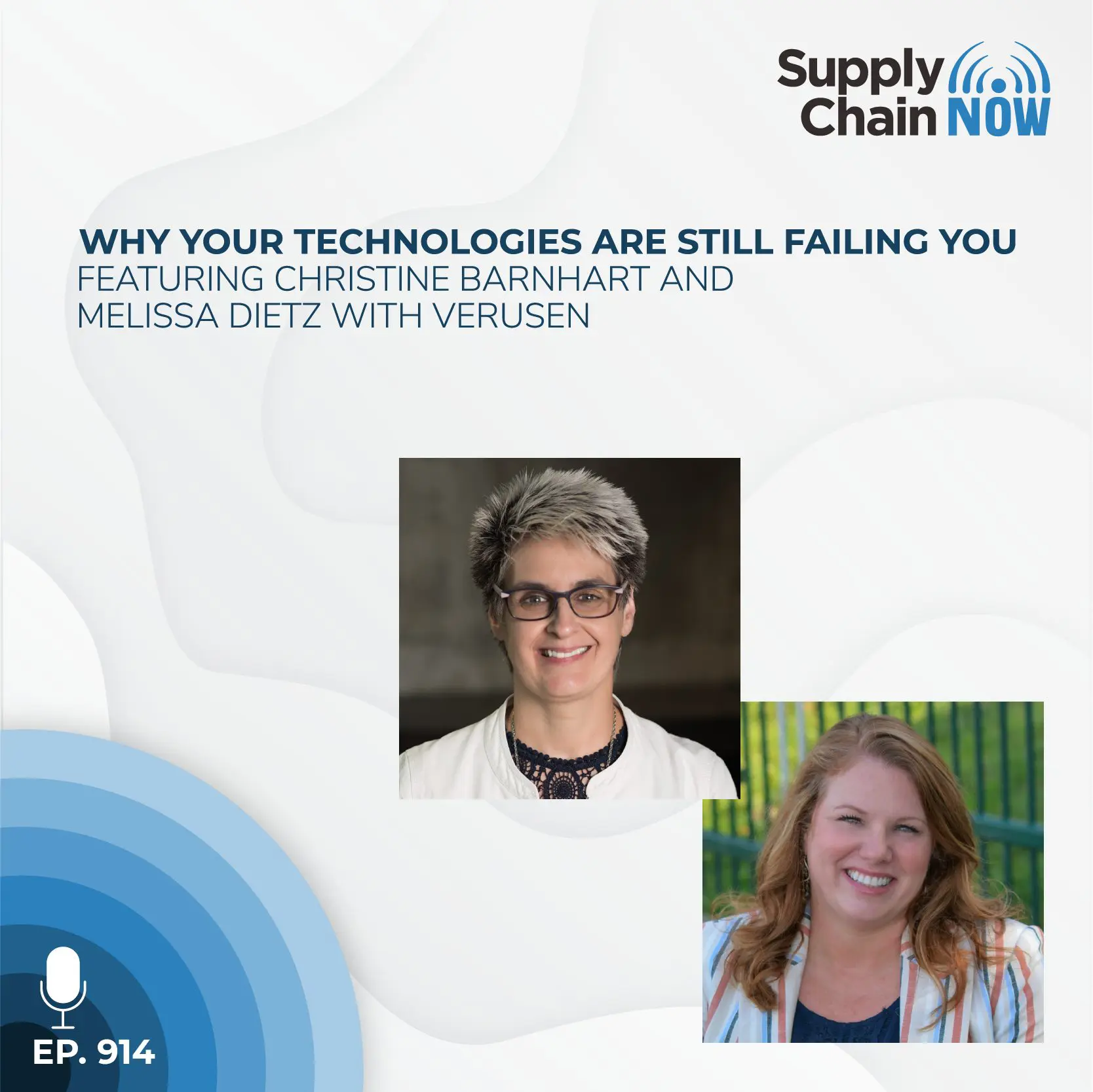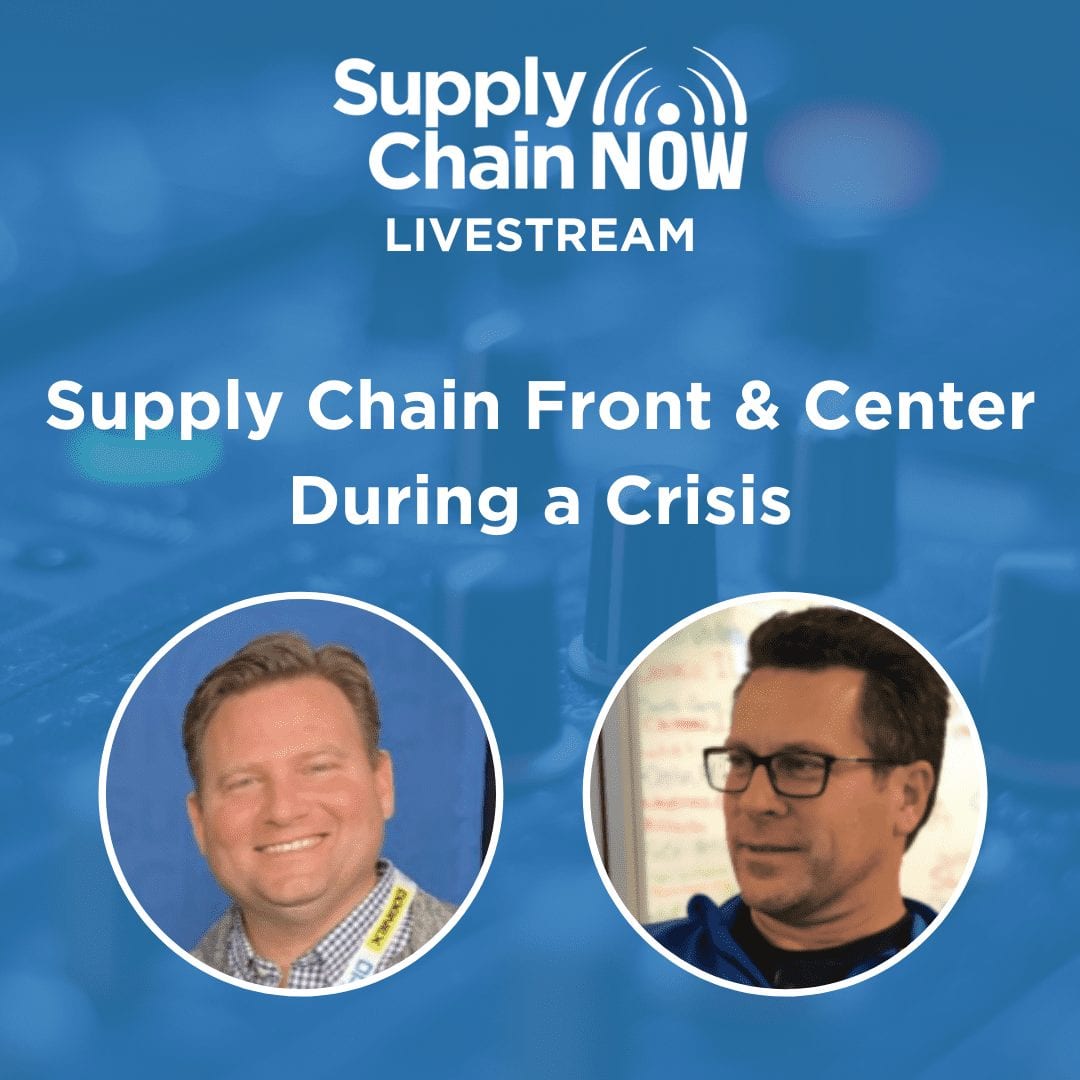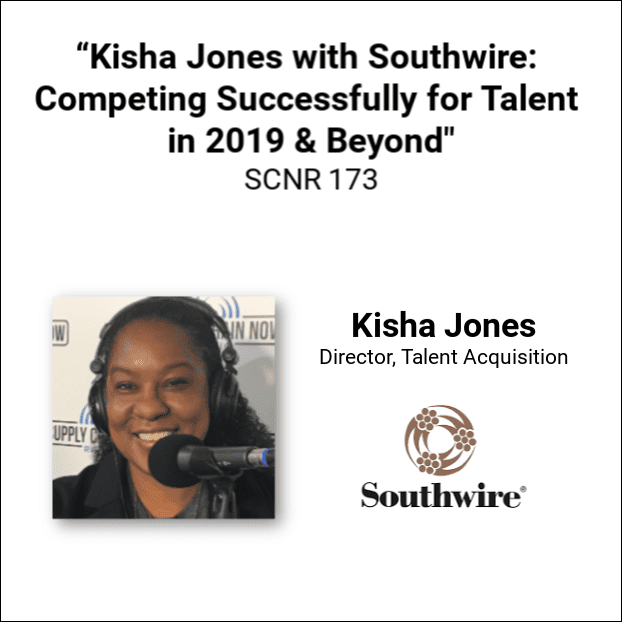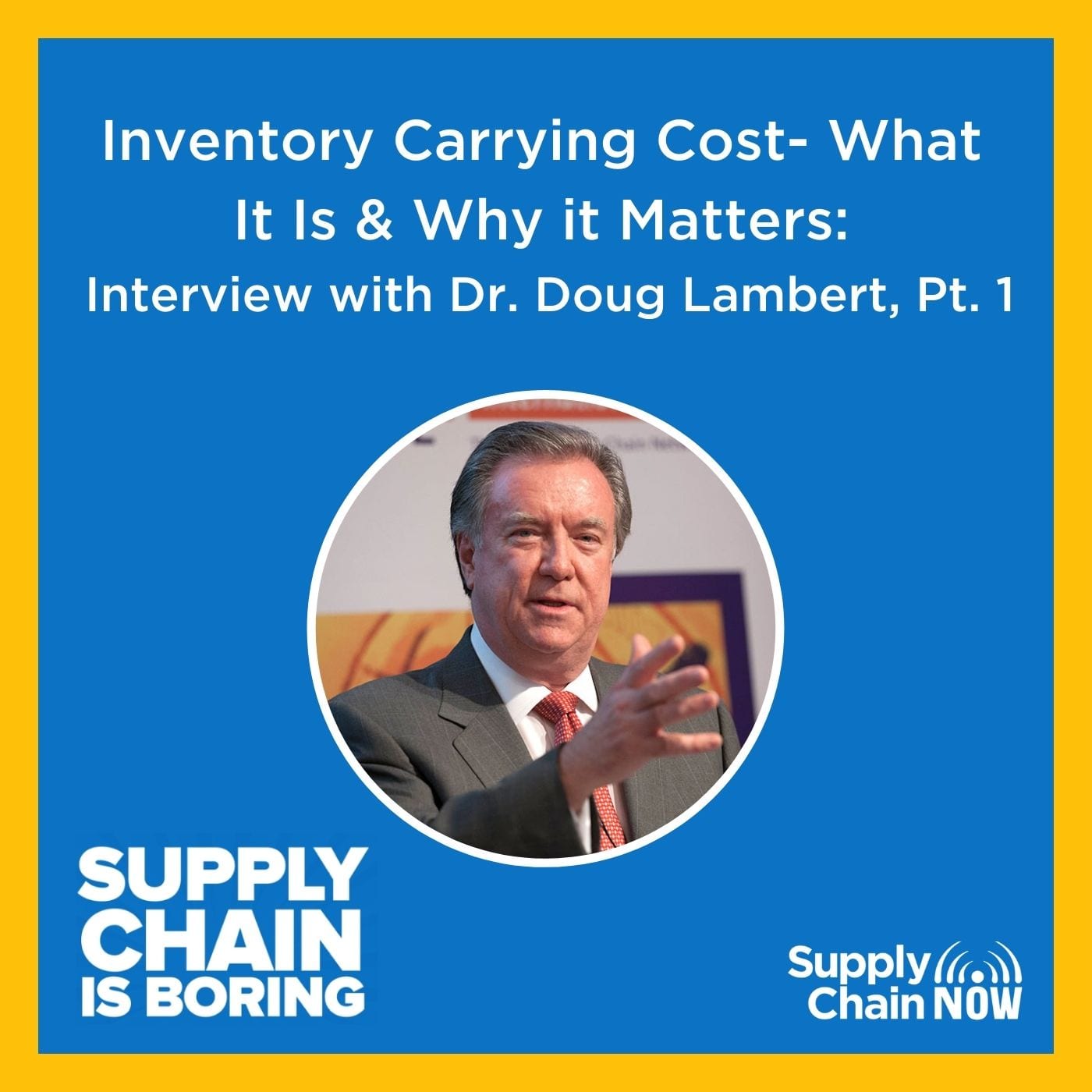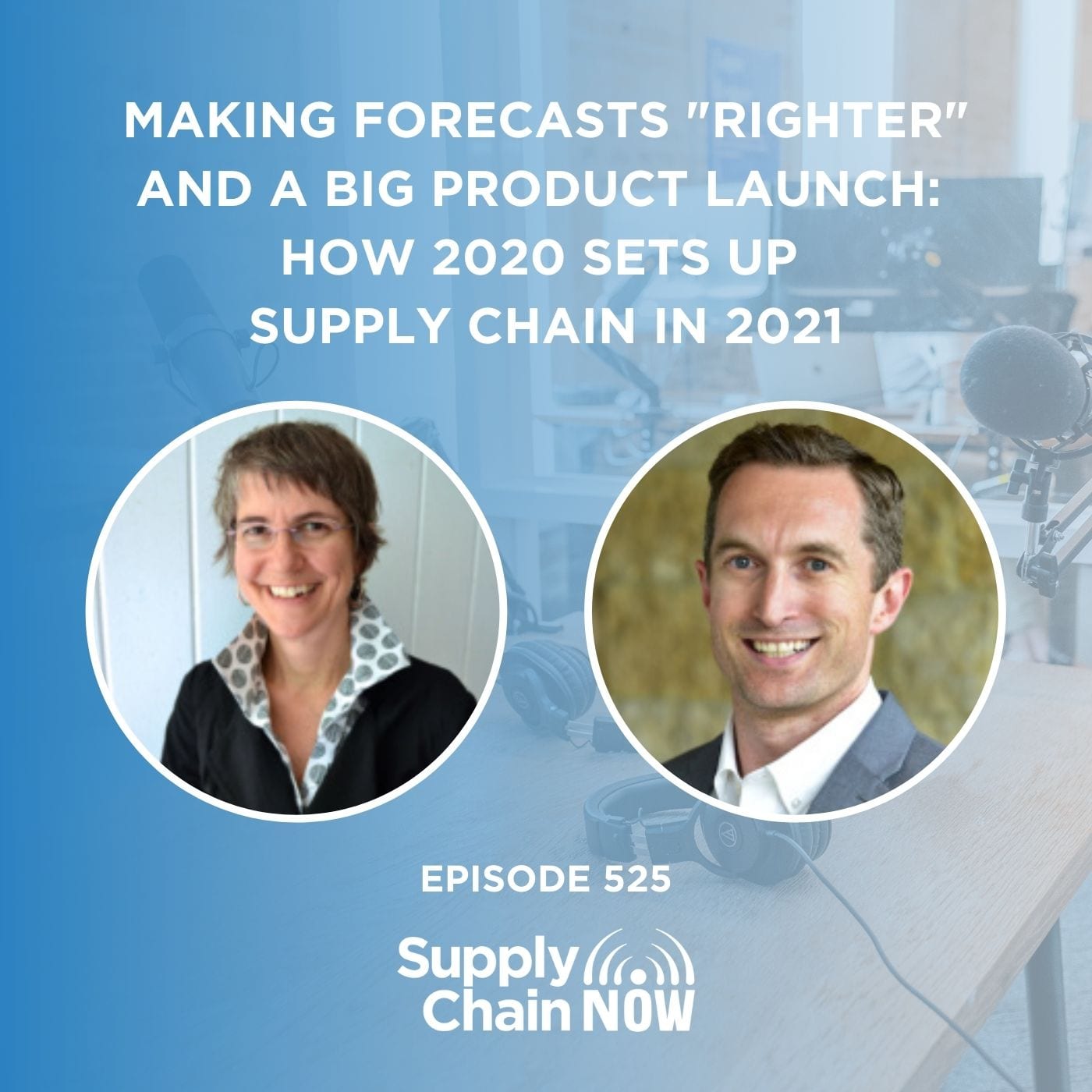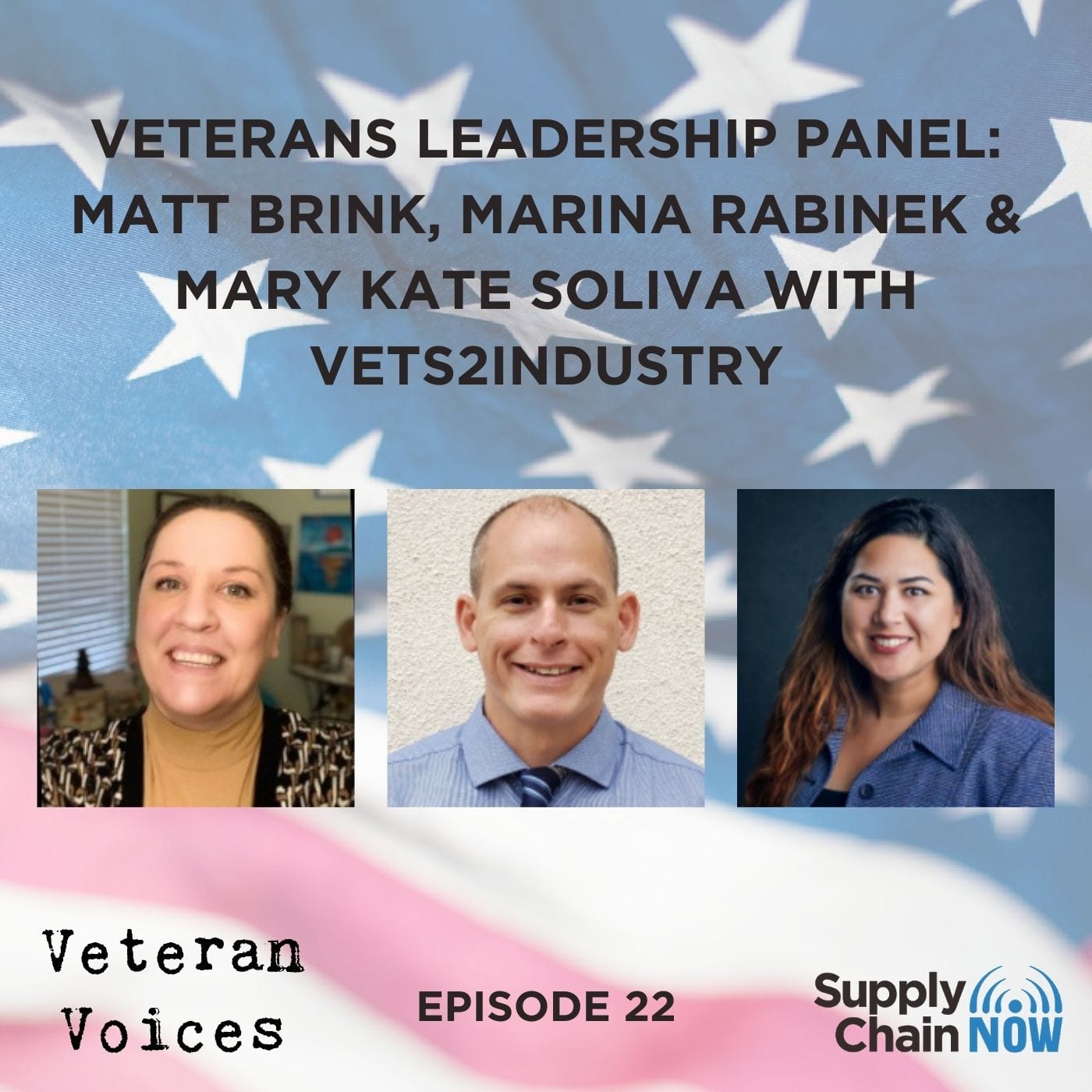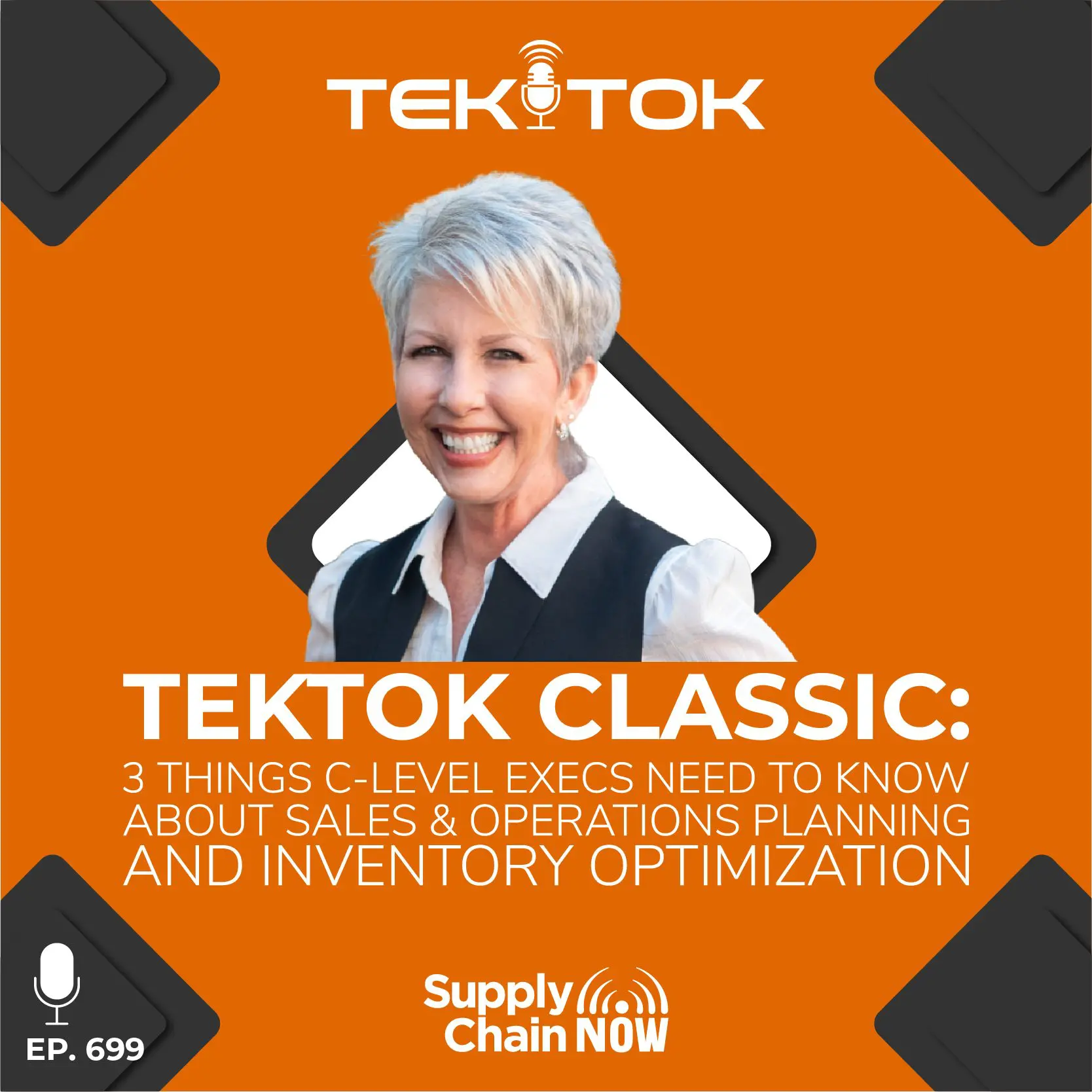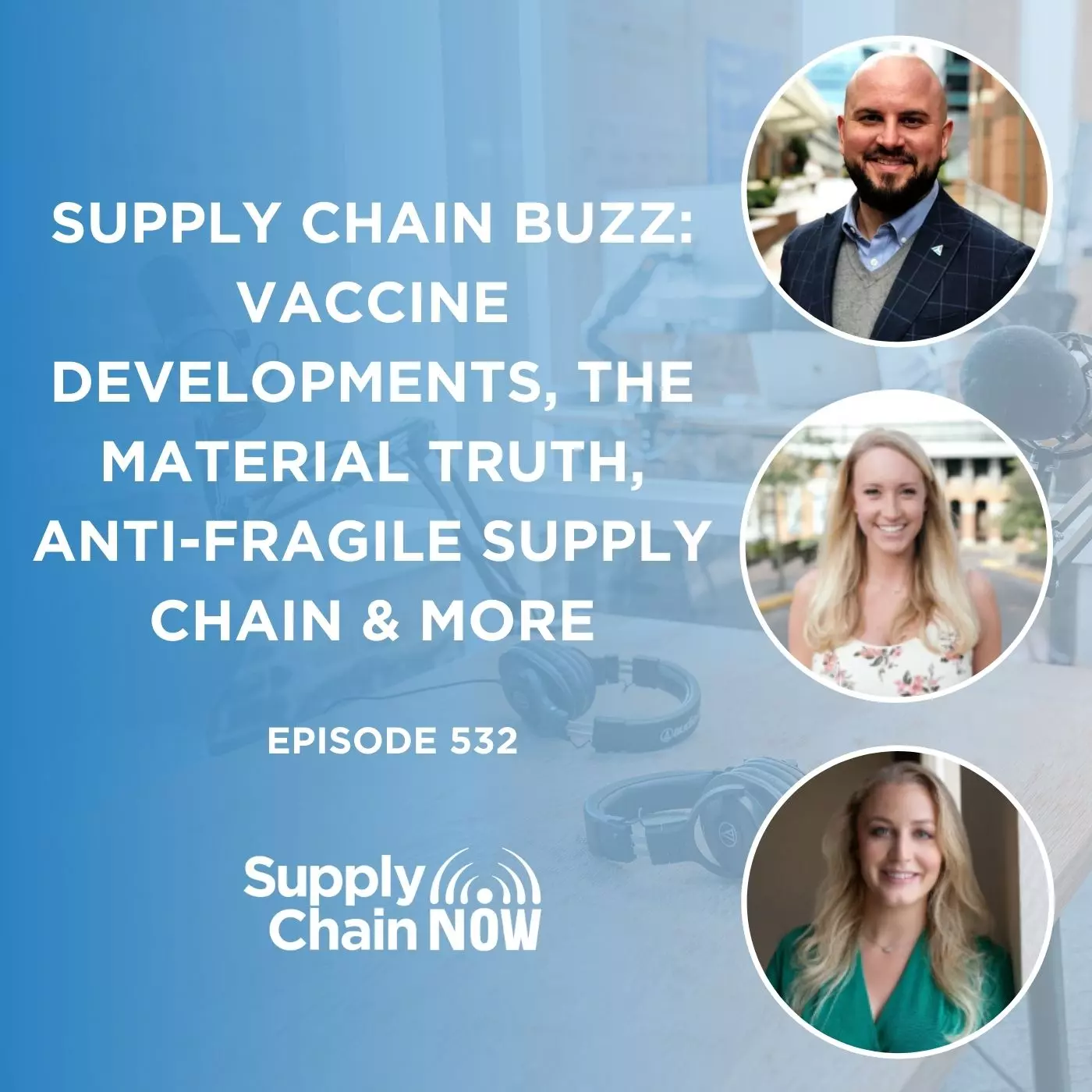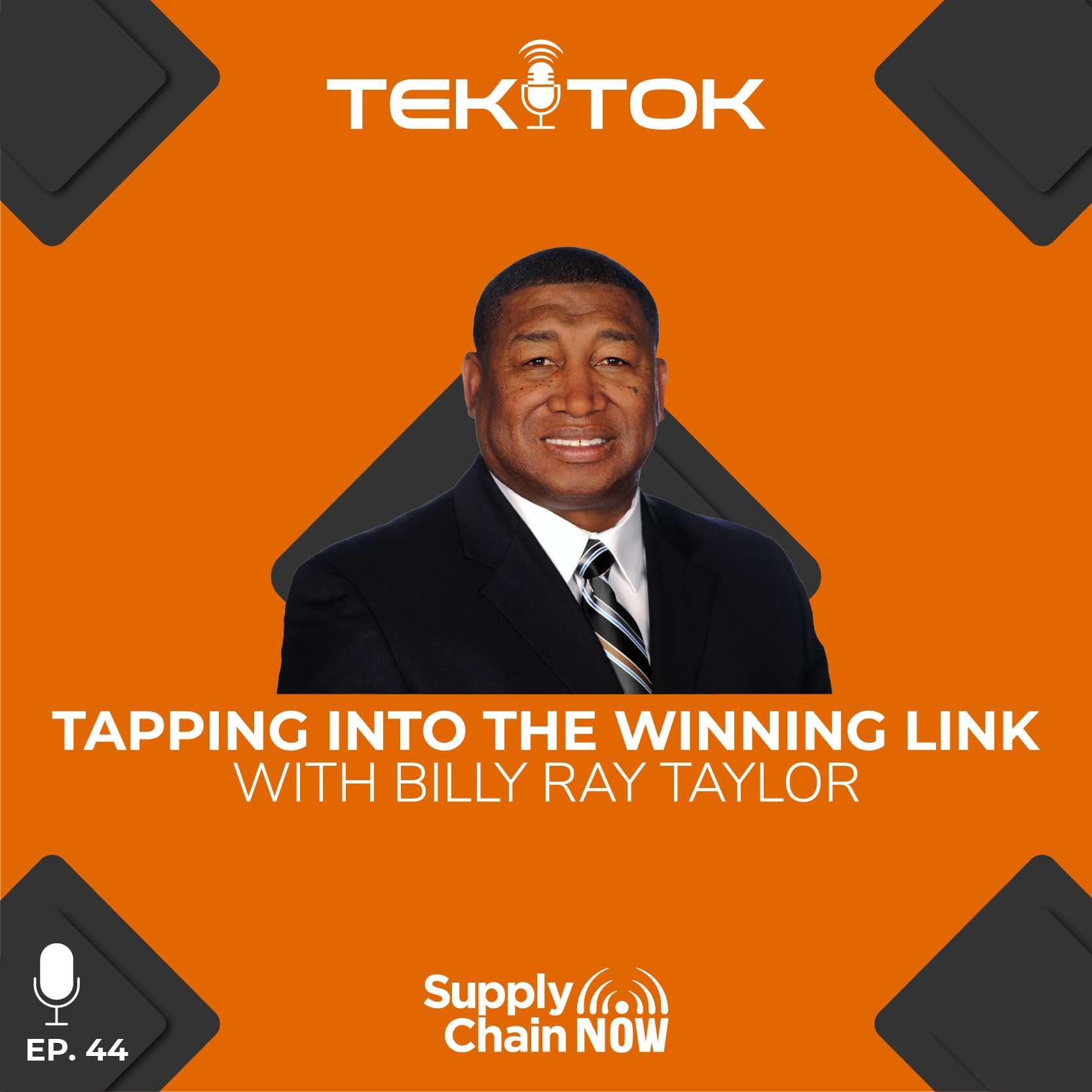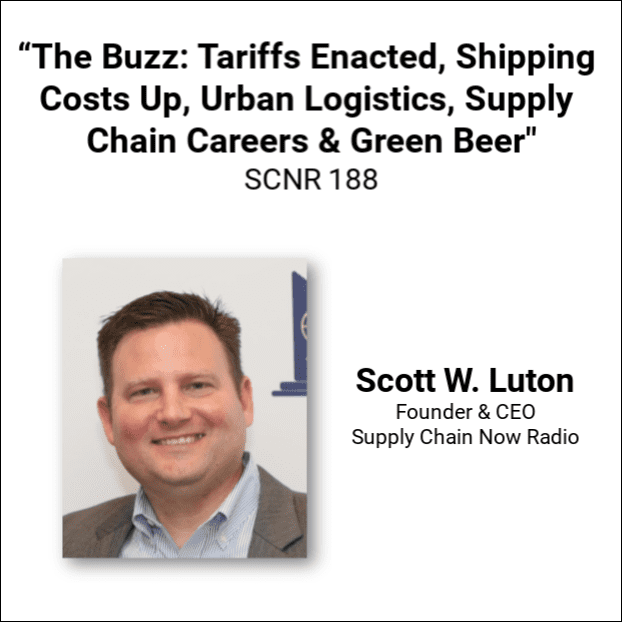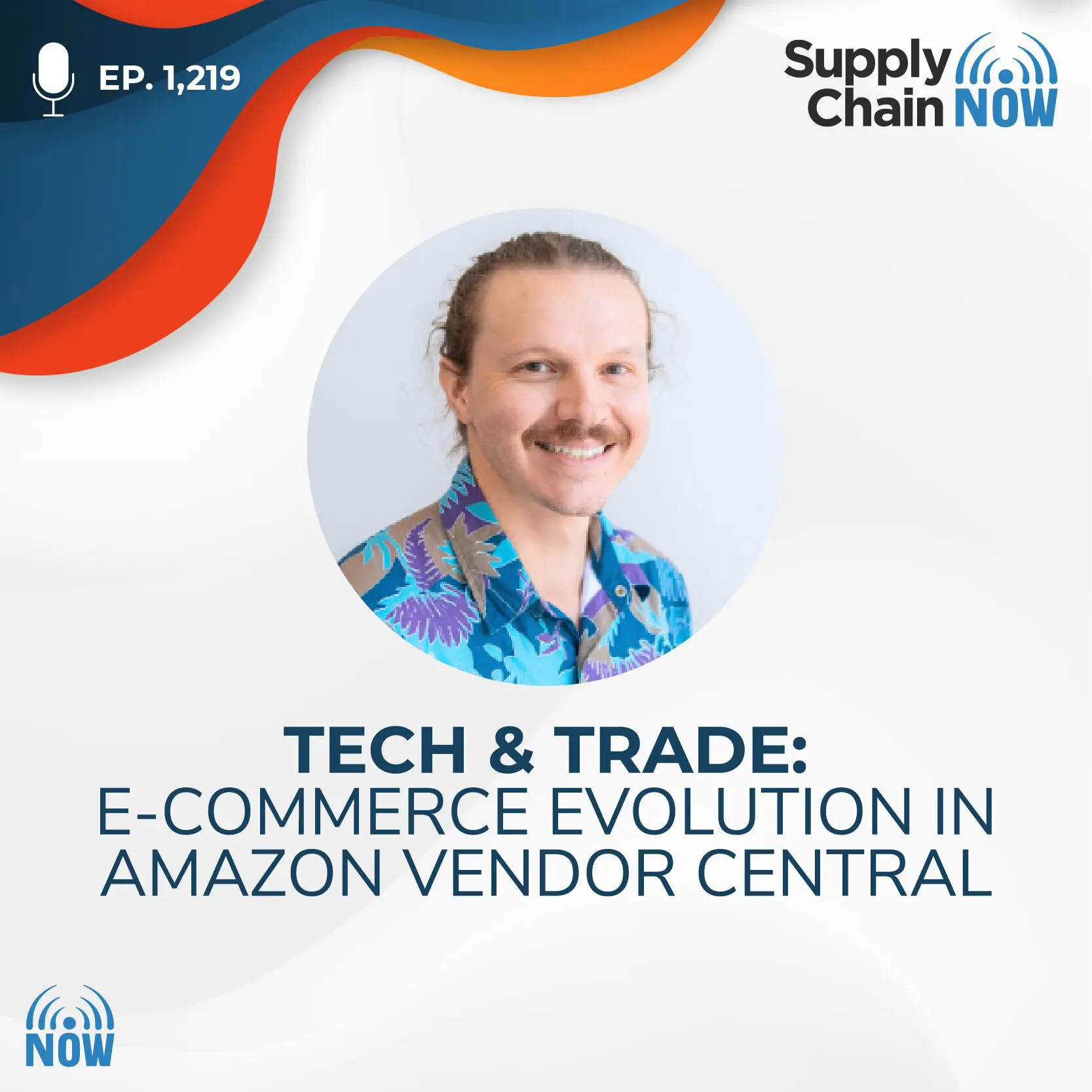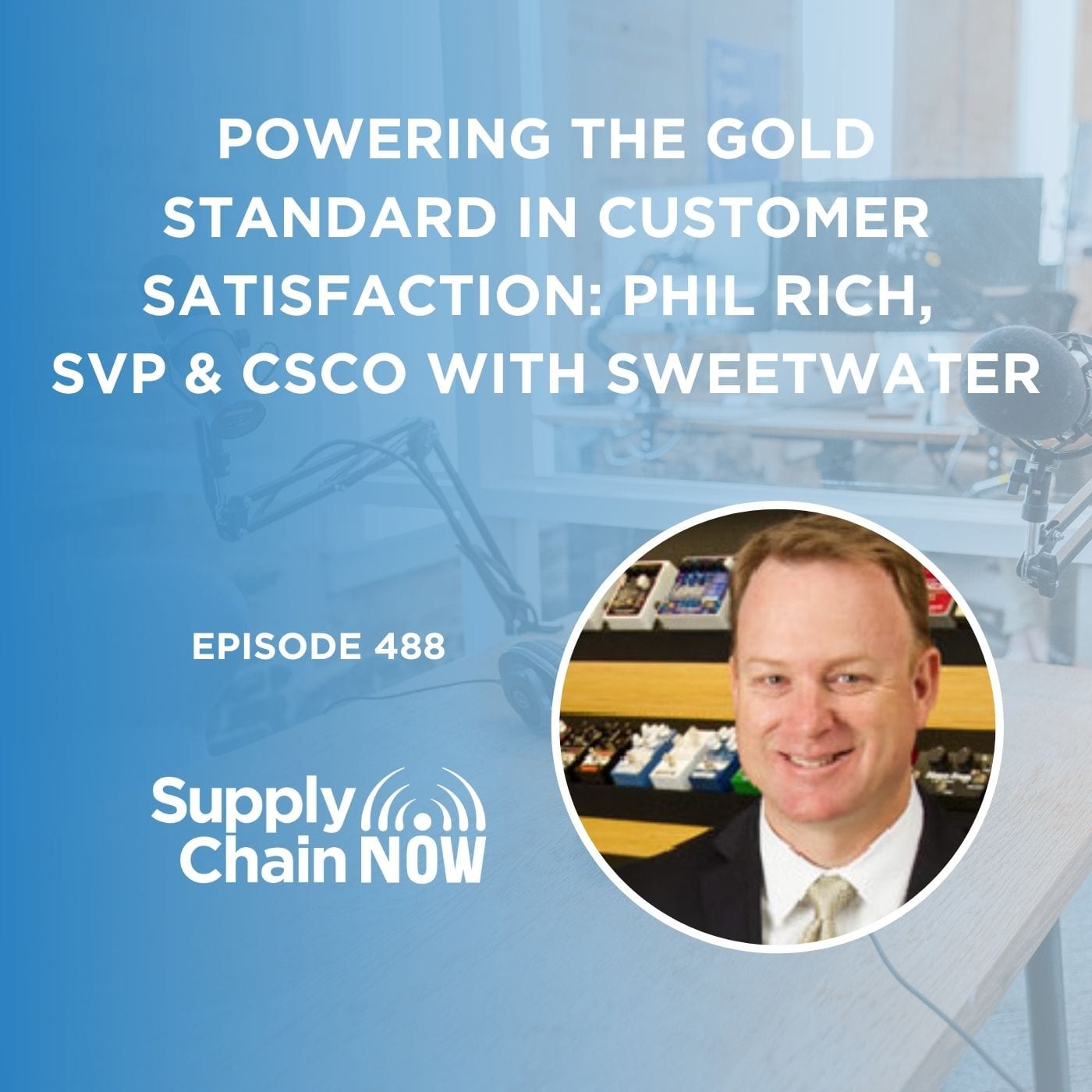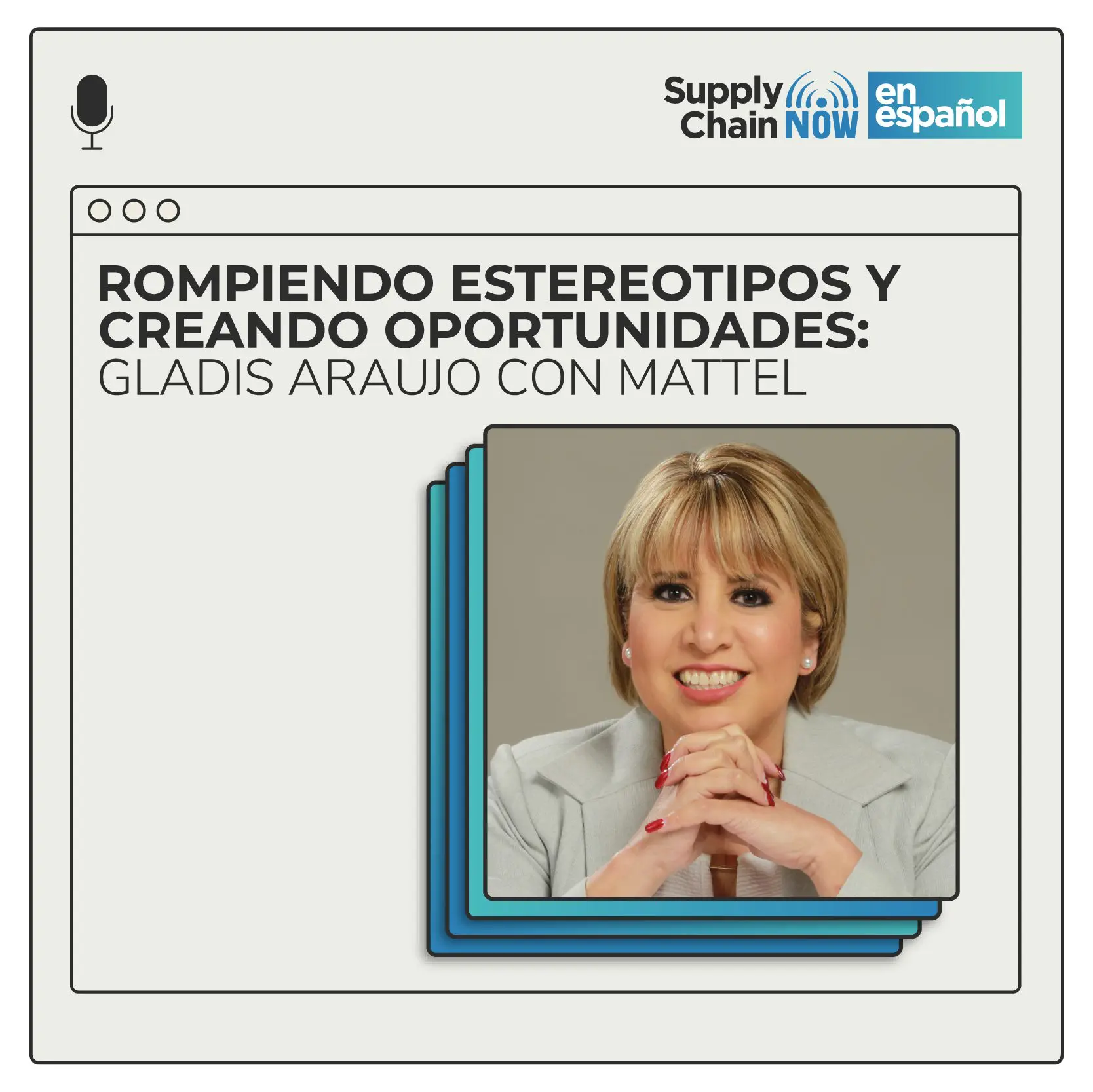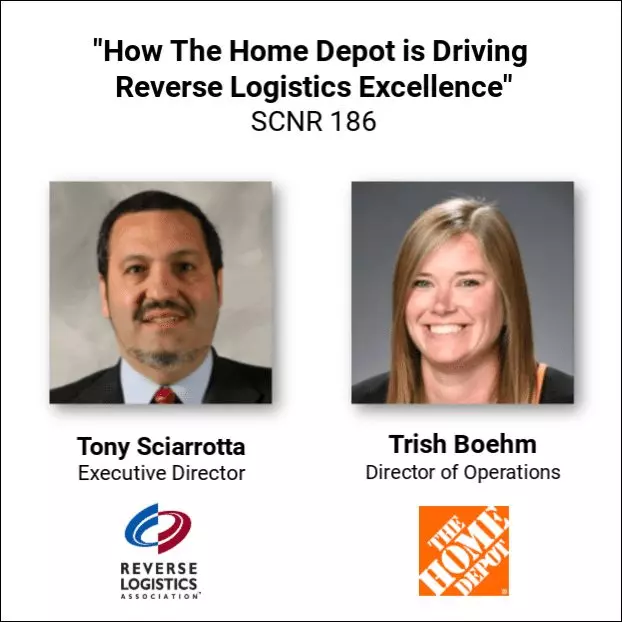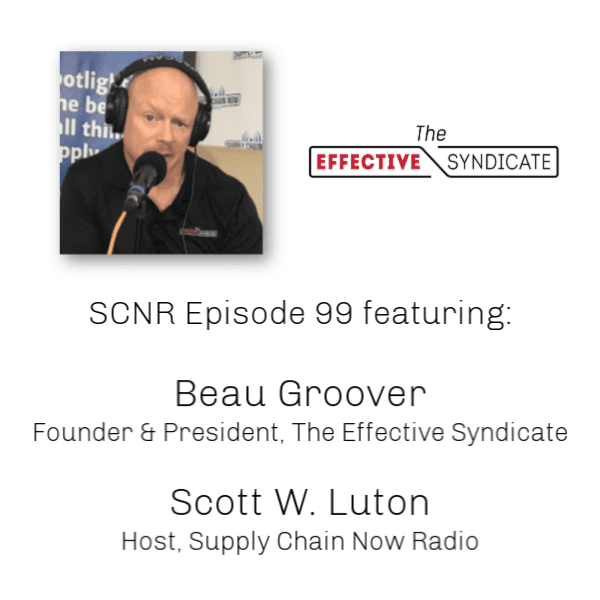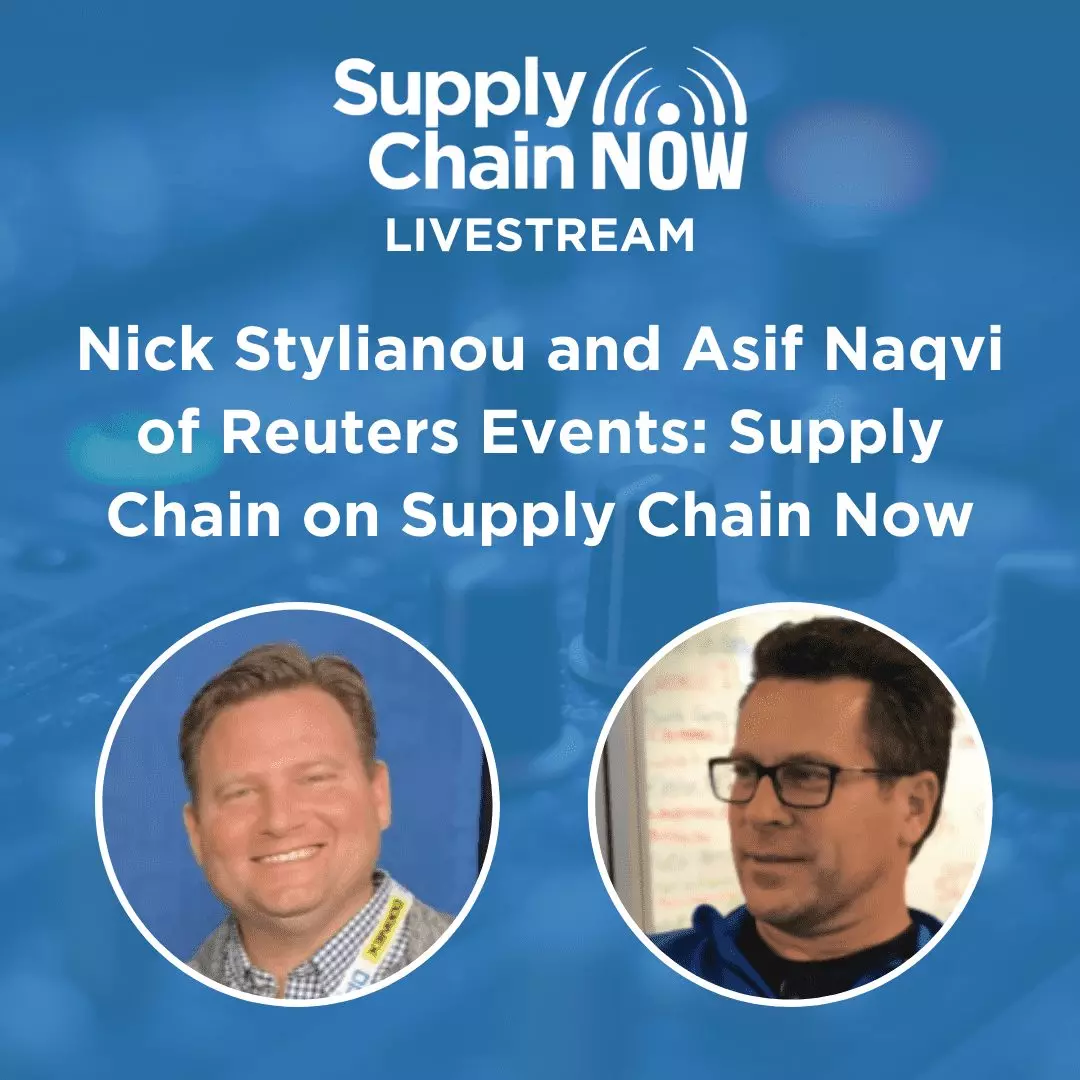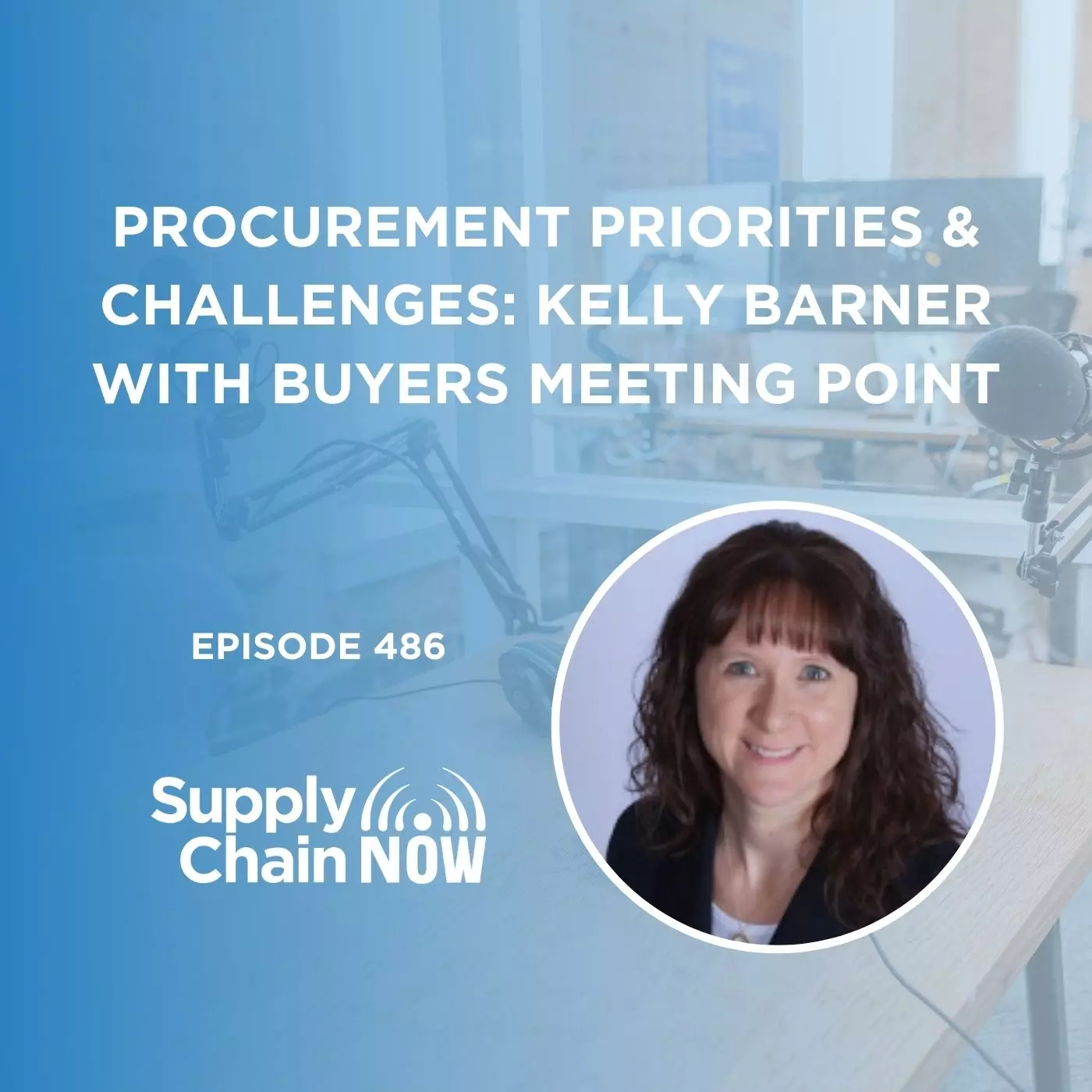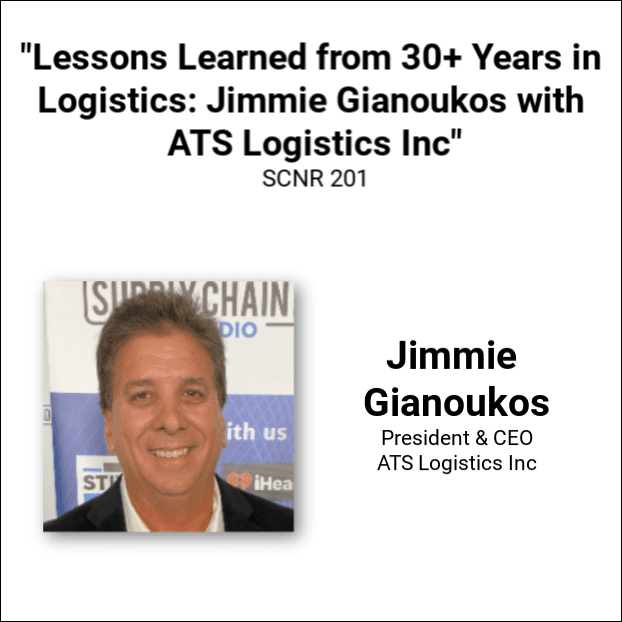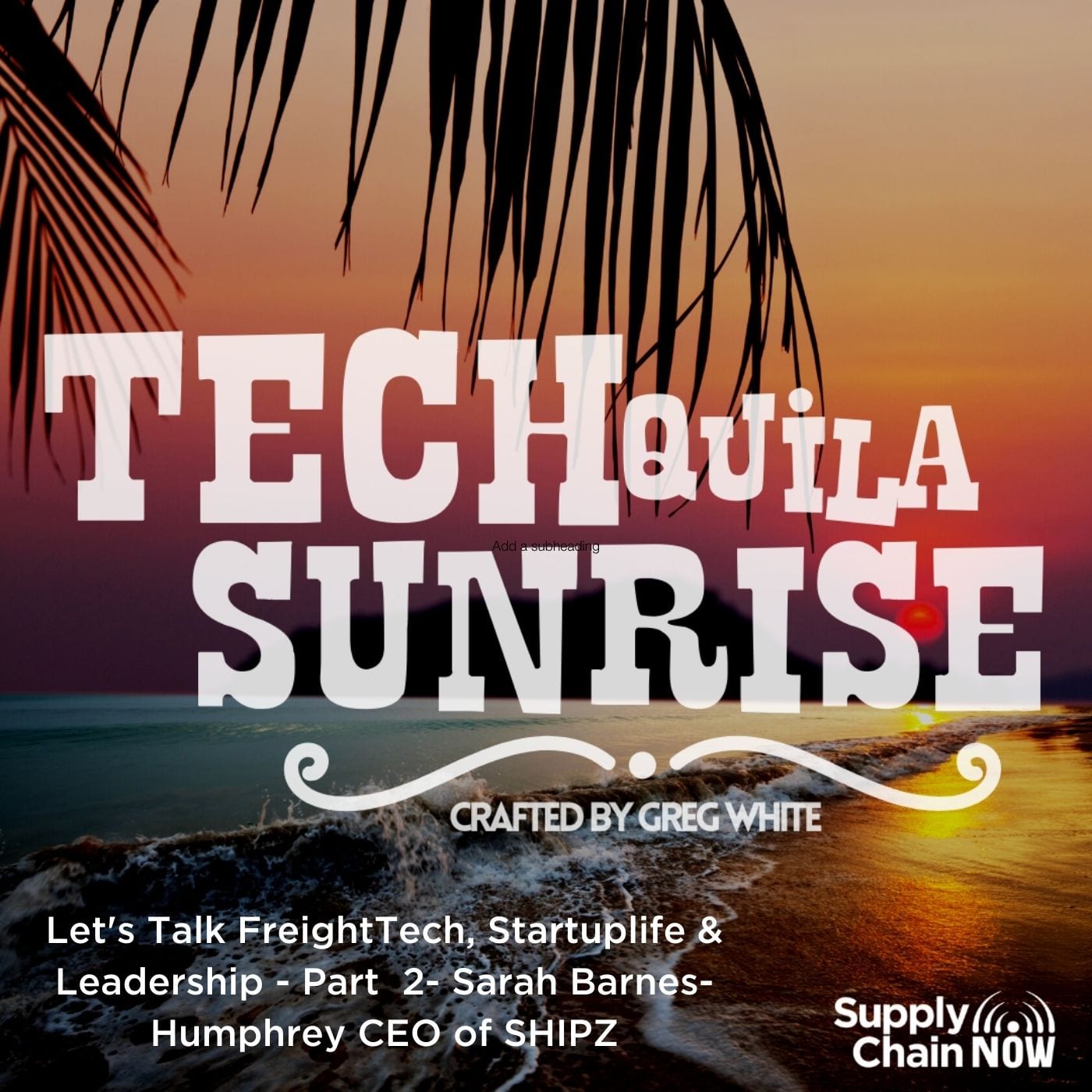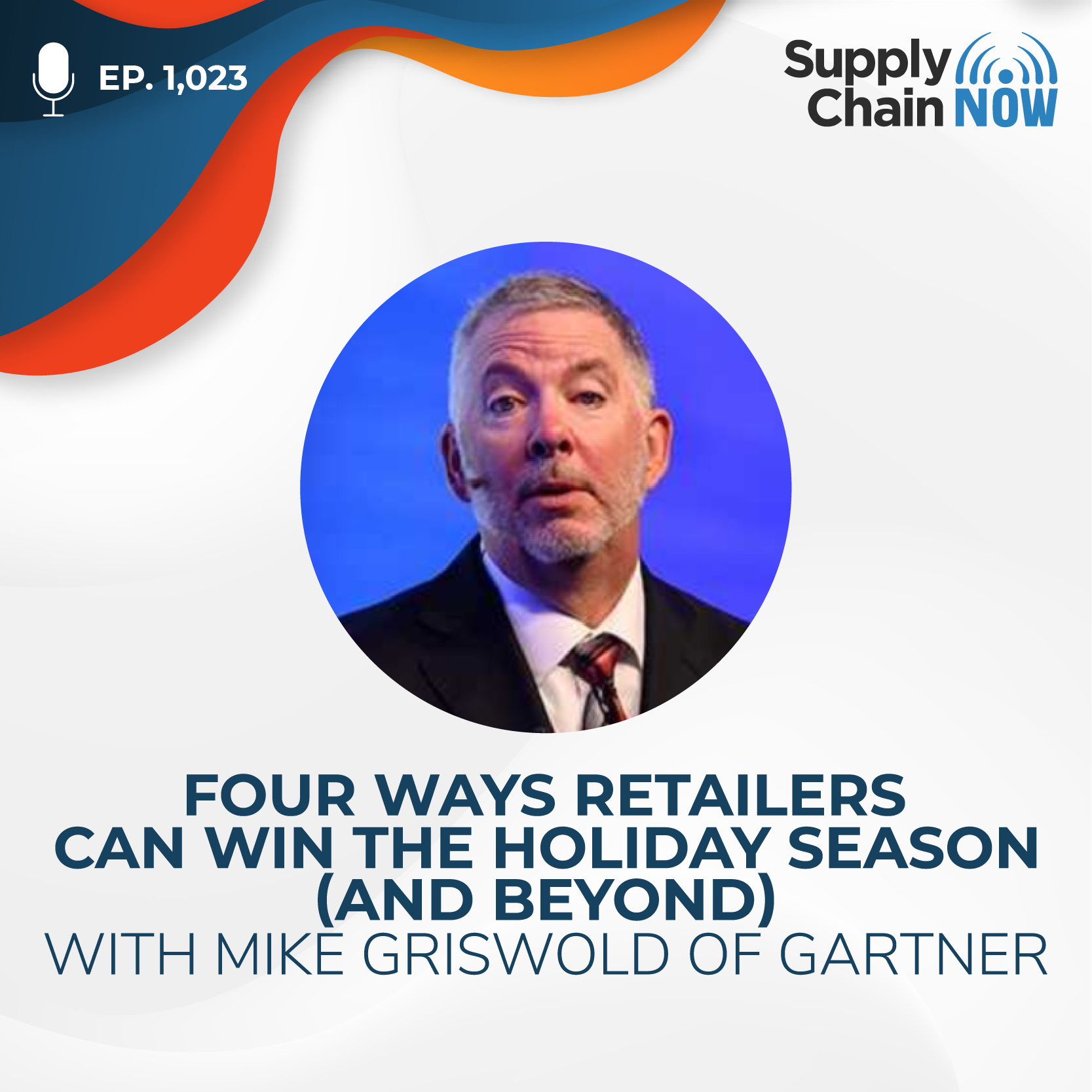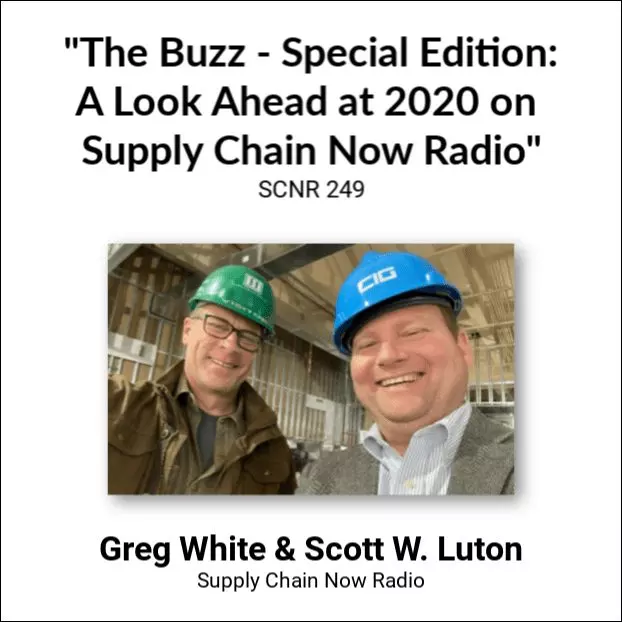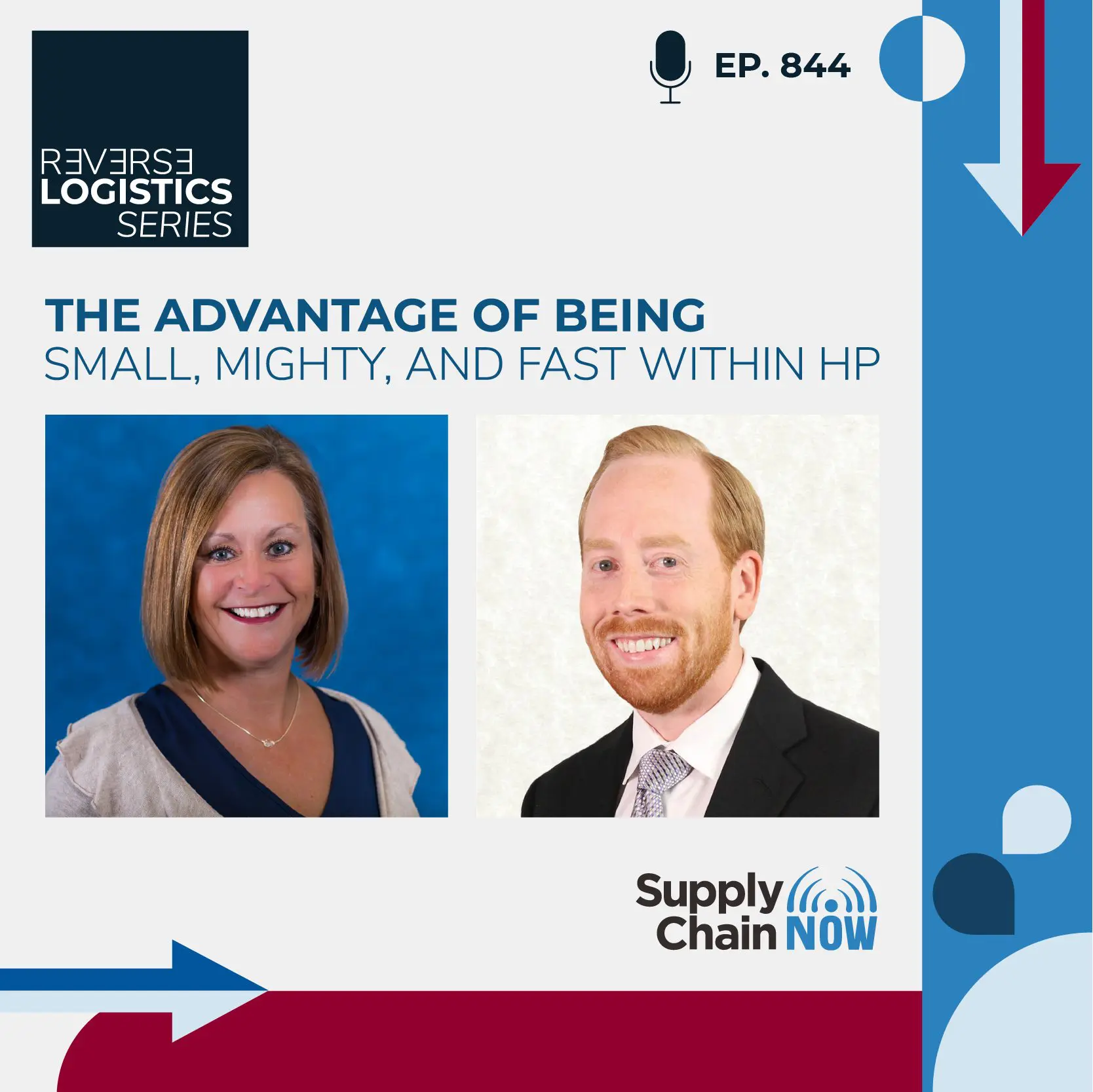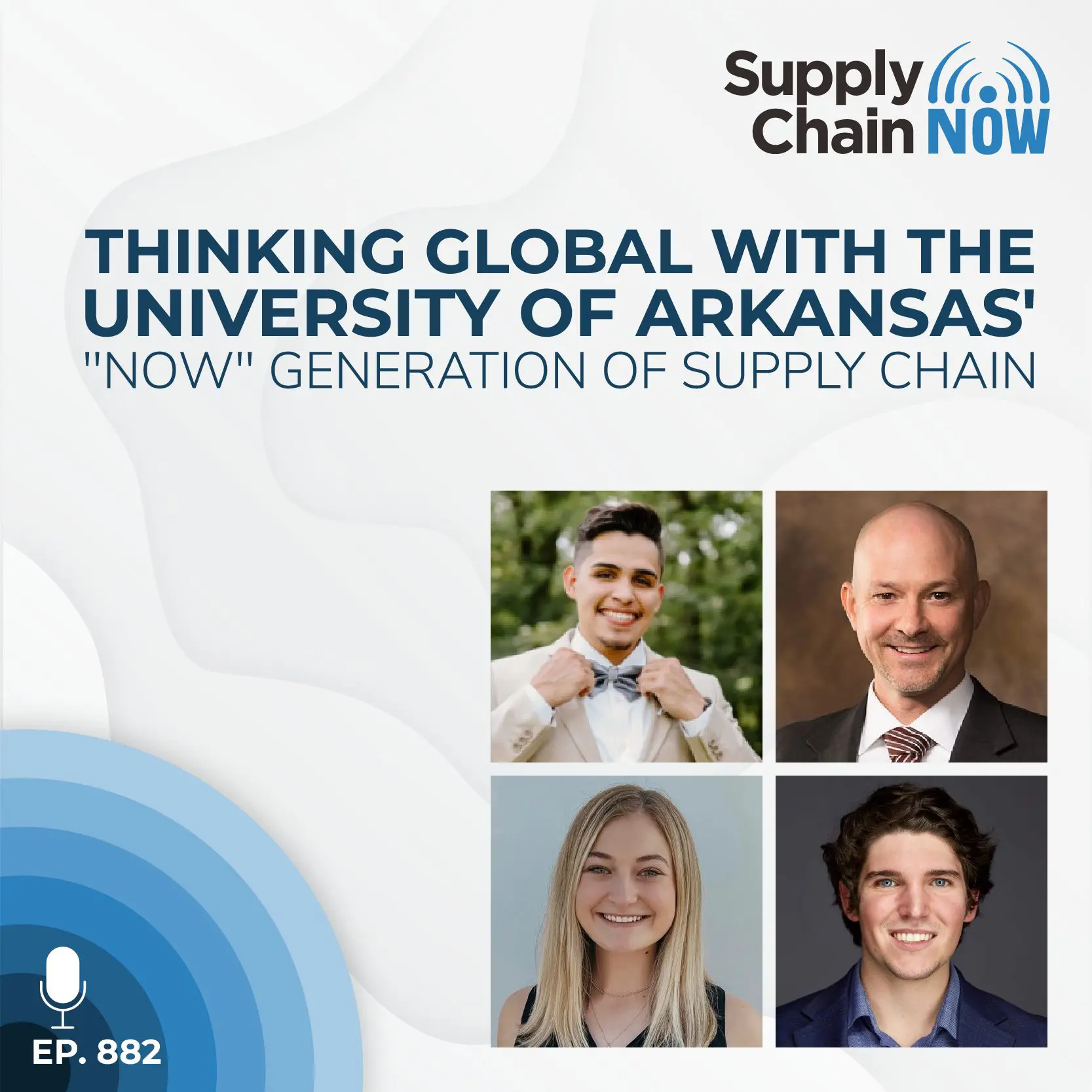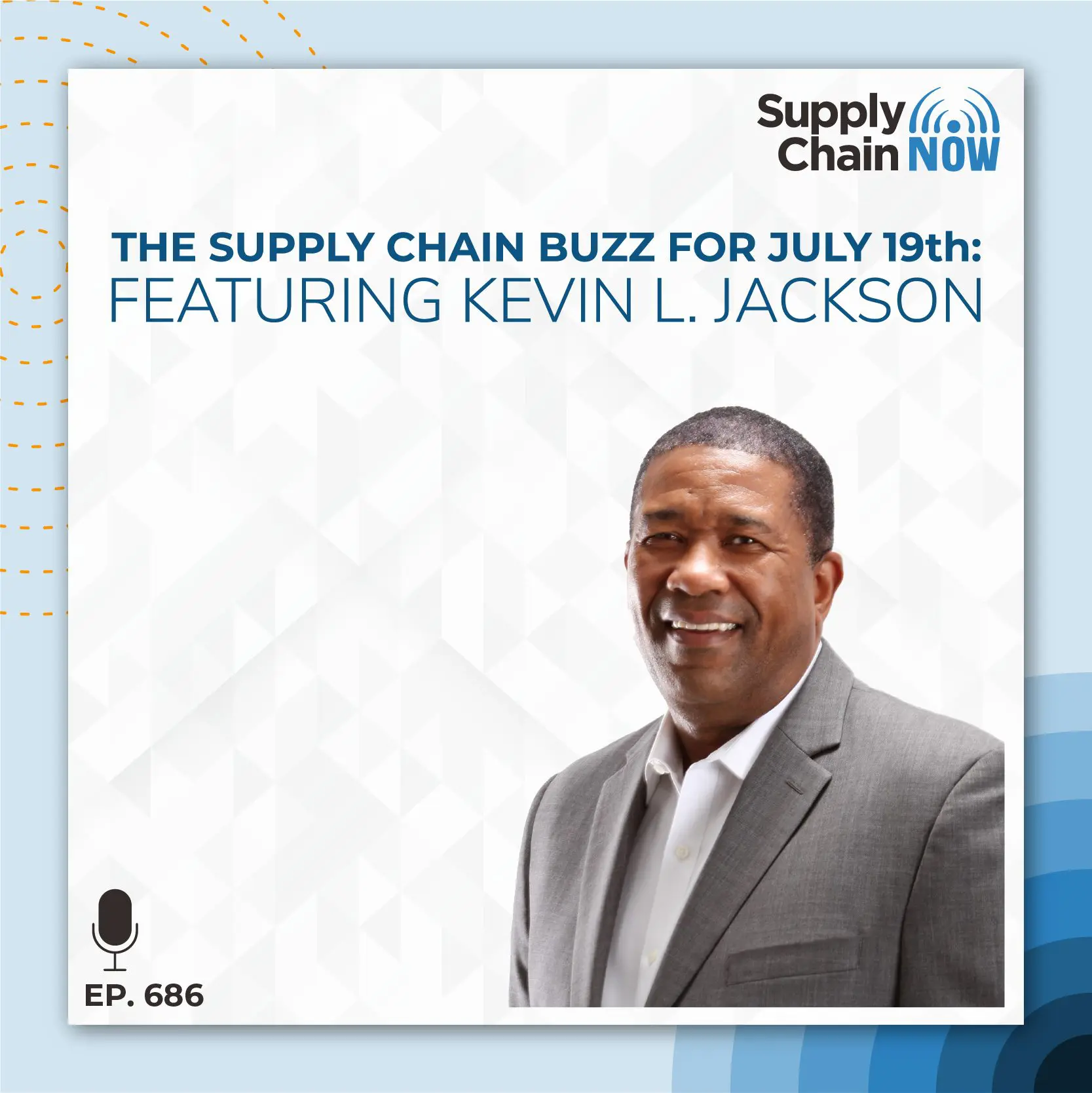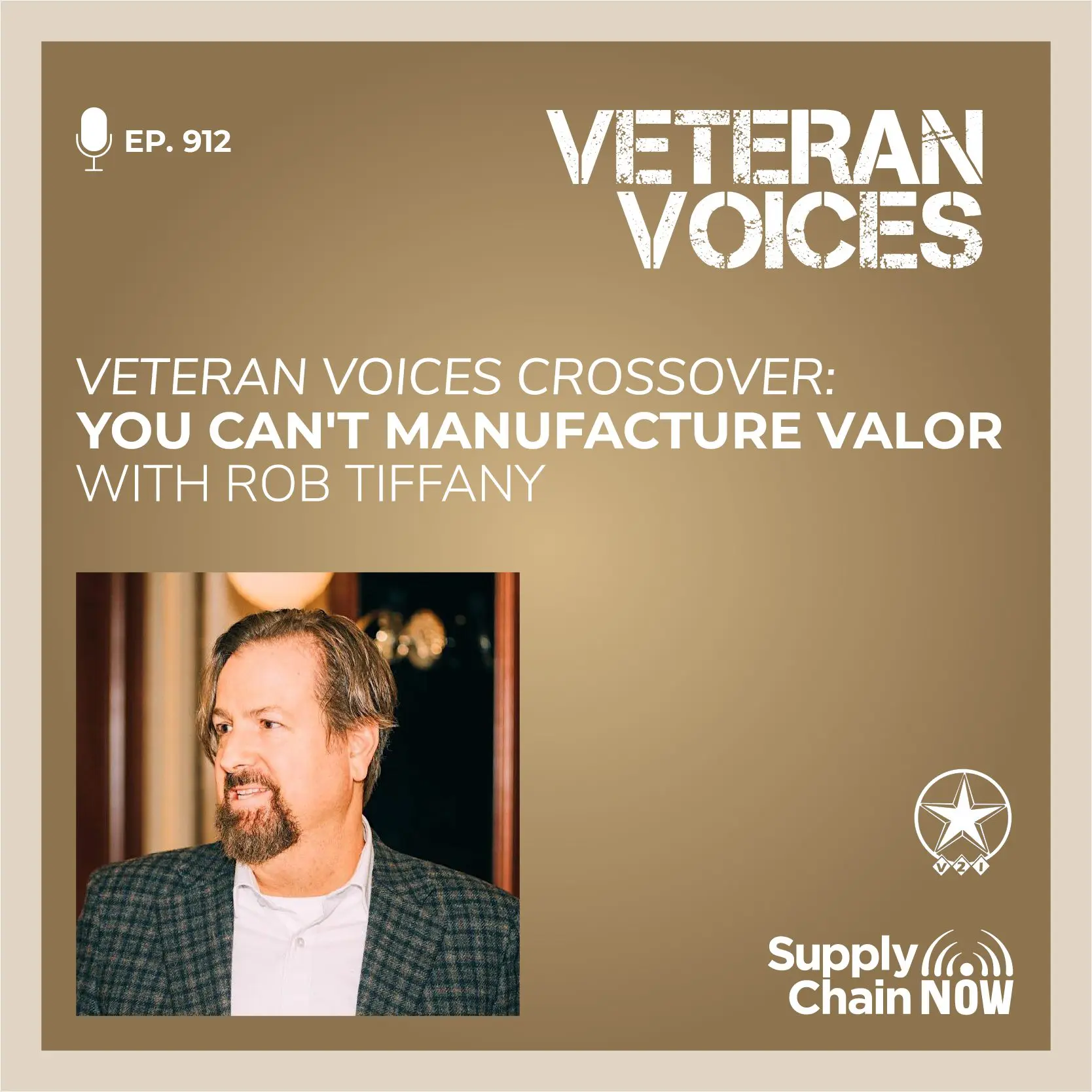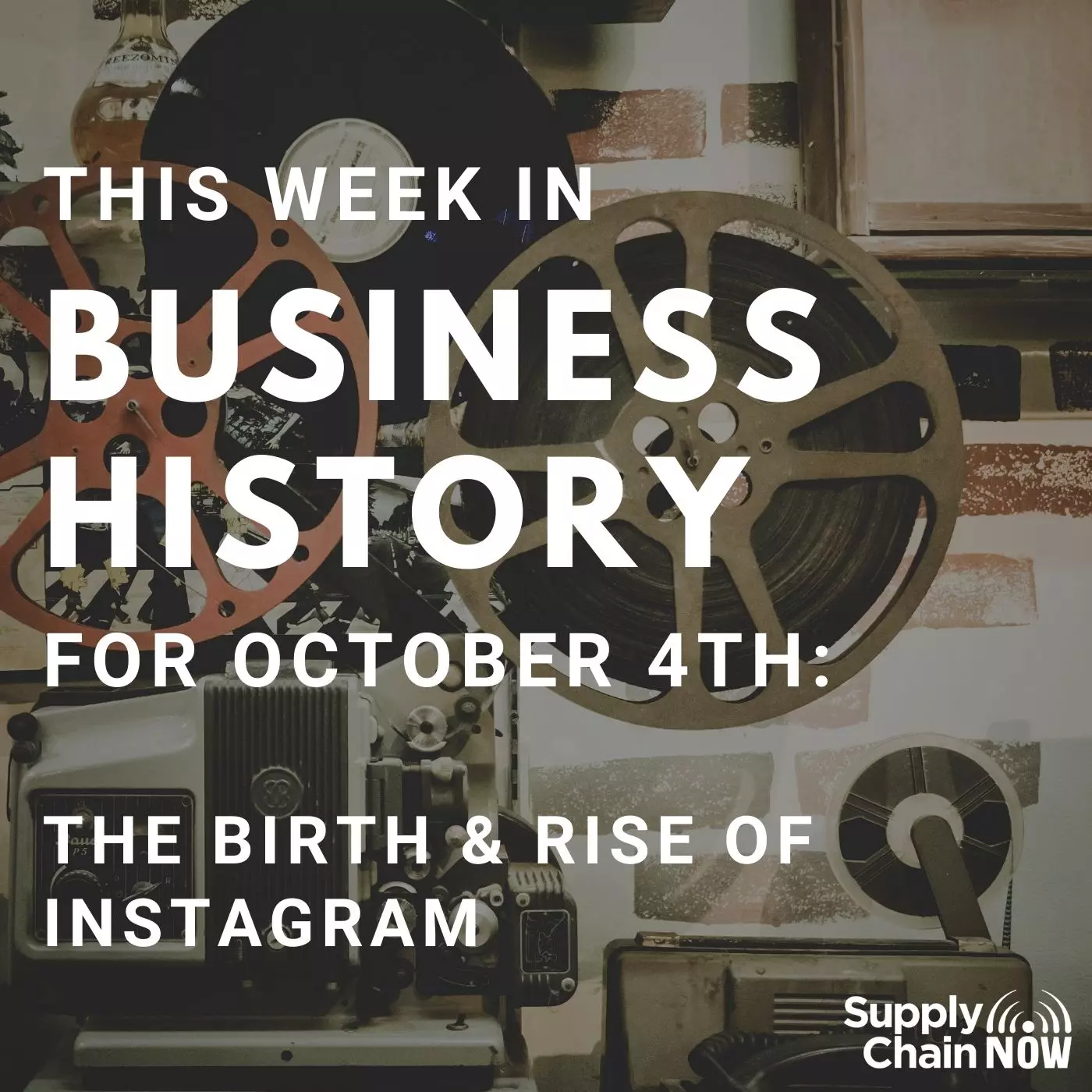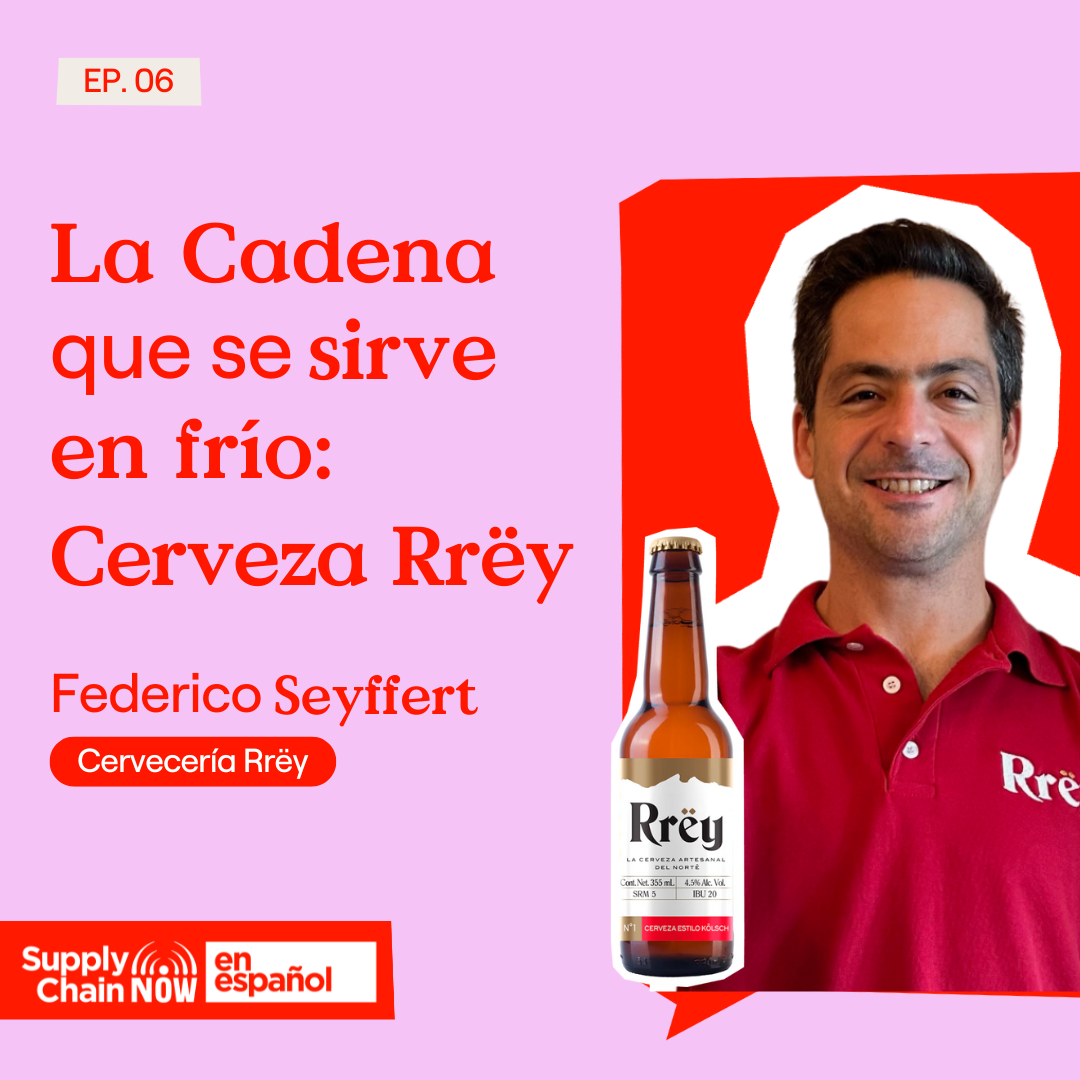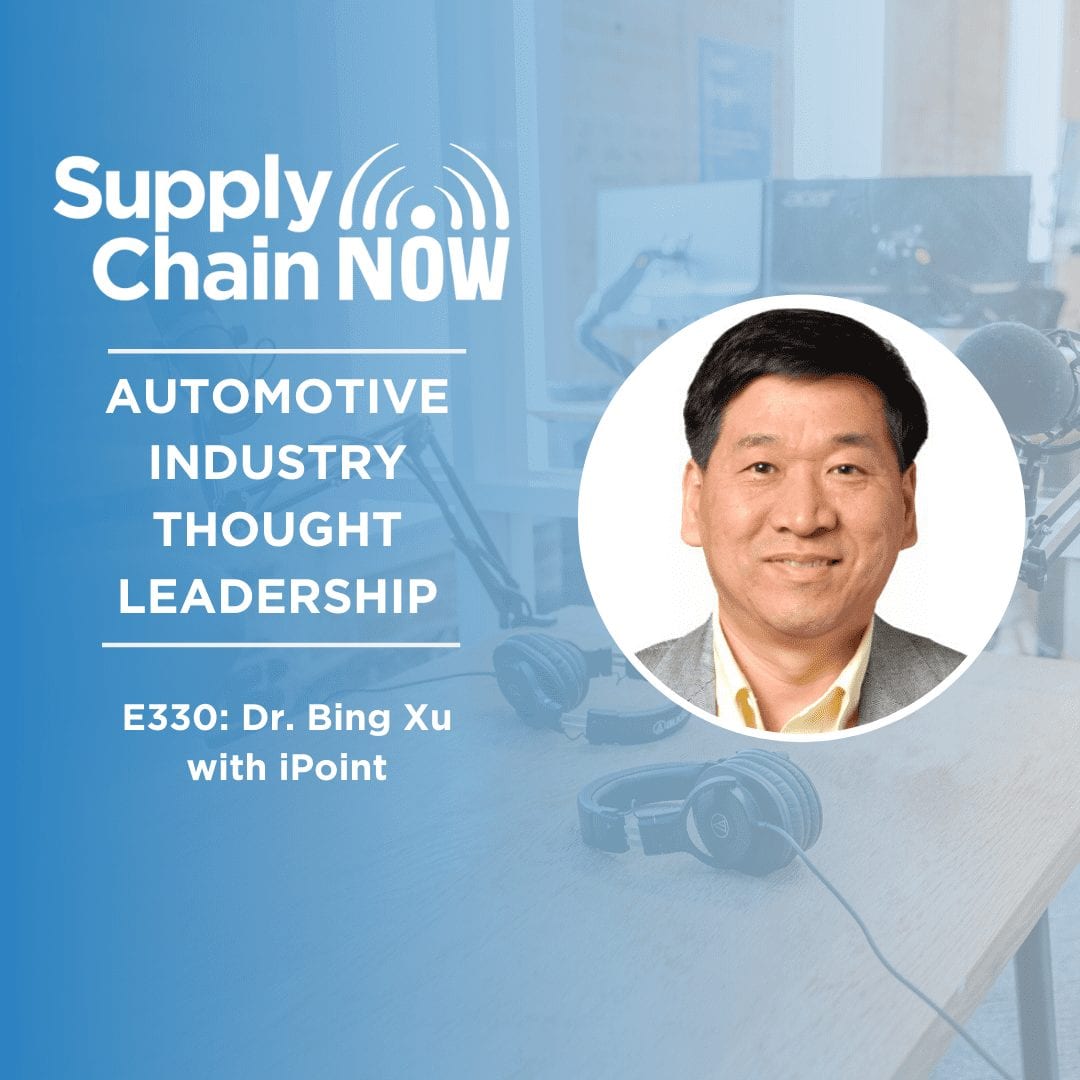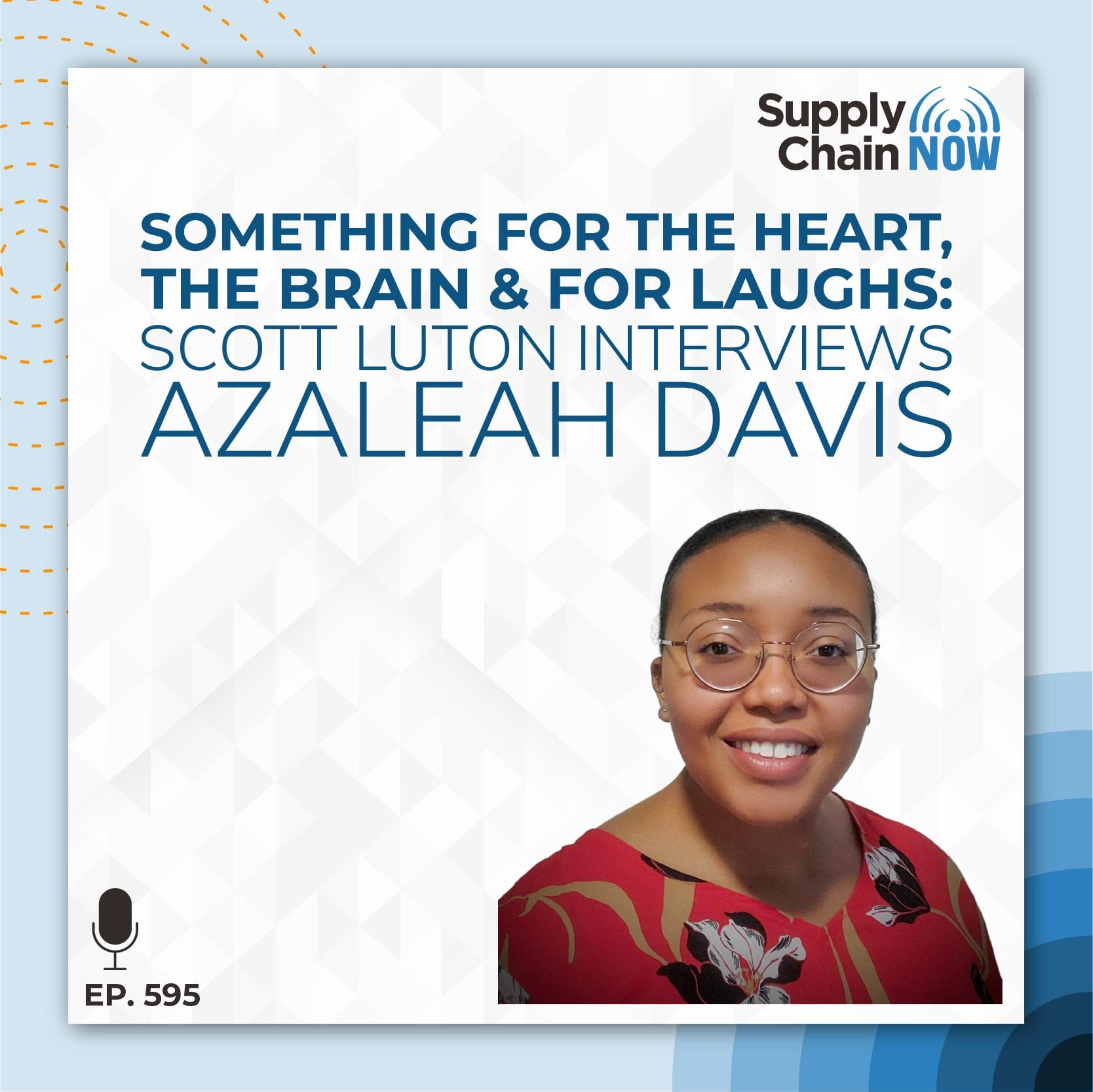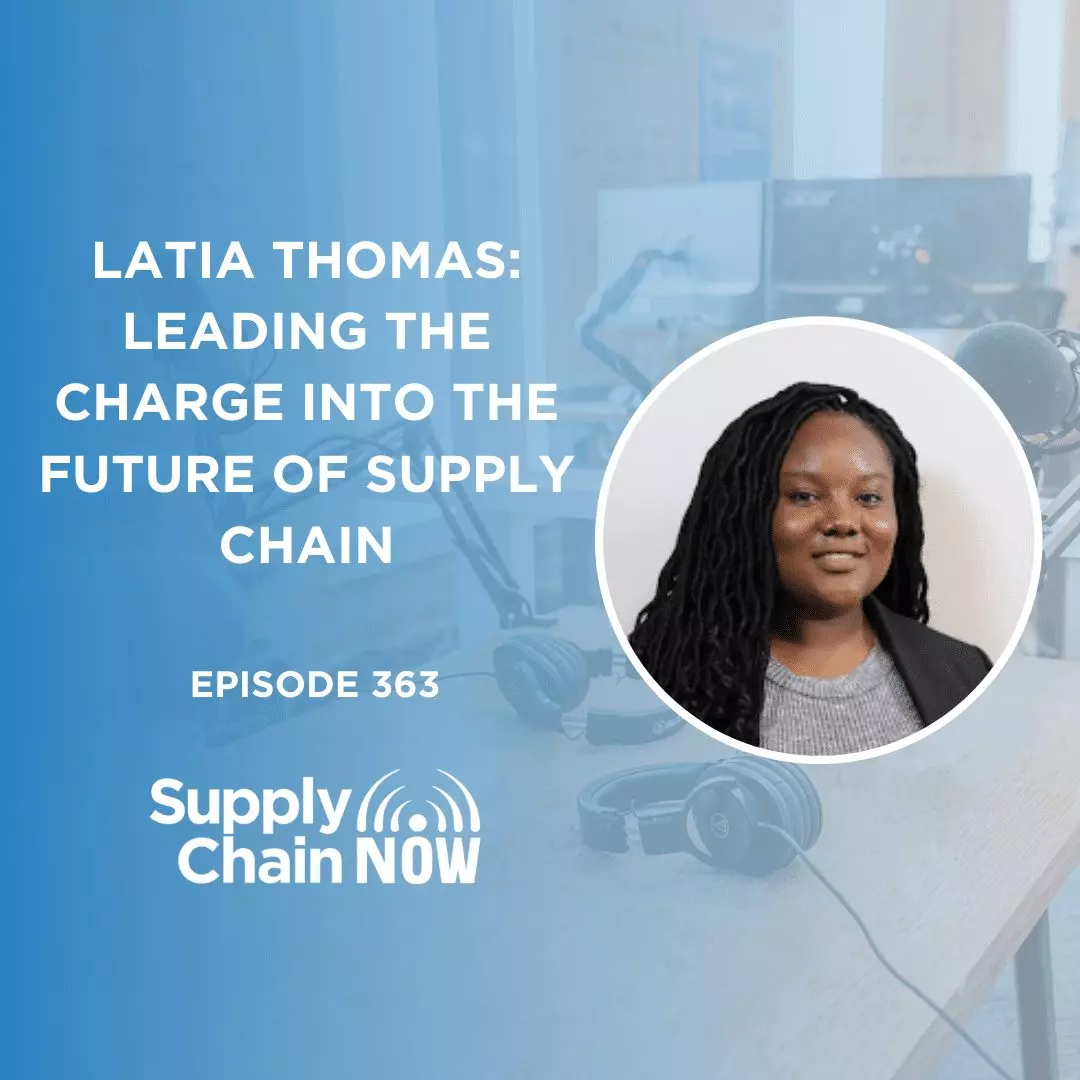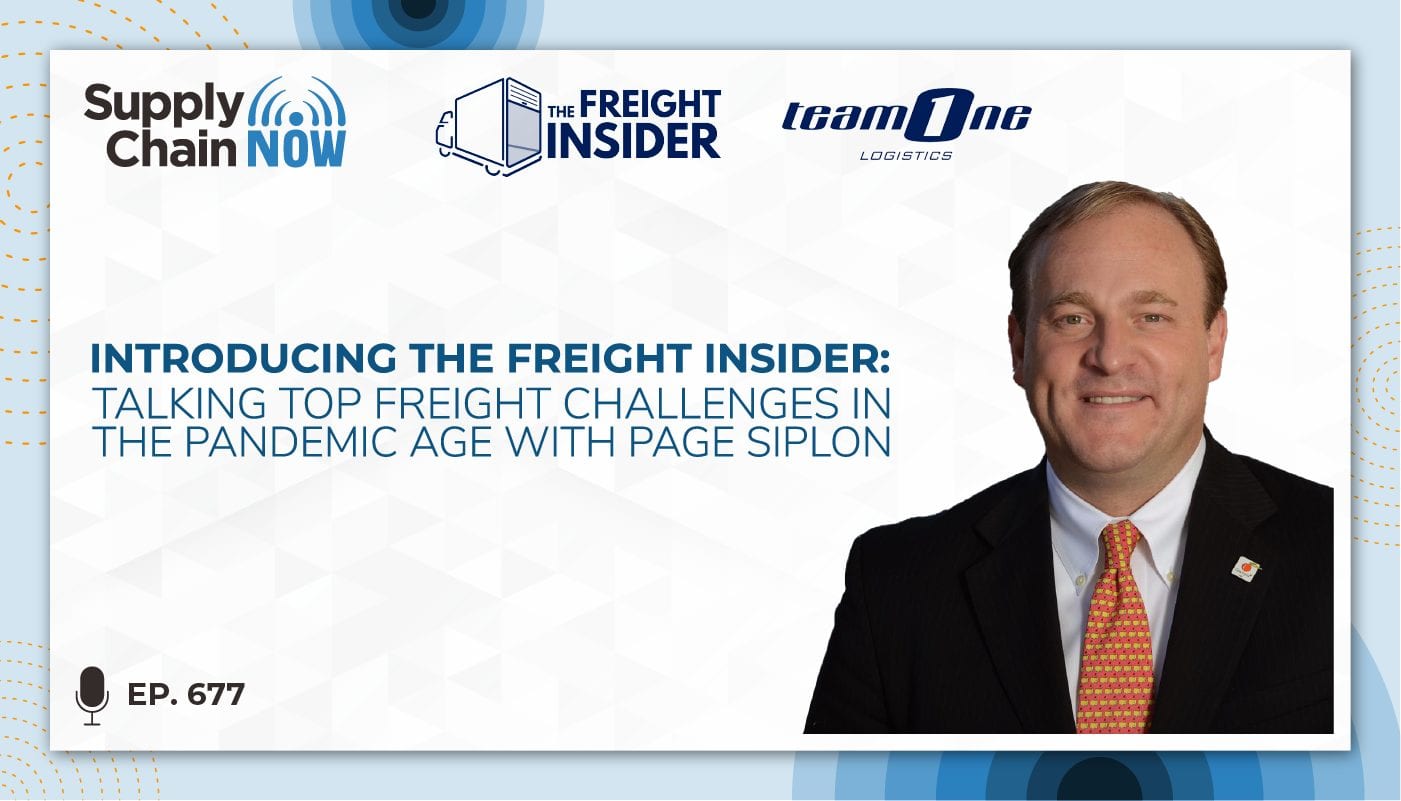
Episode Summary
“Freight is that common denominator to this complicated math problem we call our economy. Every business is impacted by freight, but how they’re impacted? That varies so much. And those are the kinds of folks we want to get on our program and just hear their stories.”
-Page Siplon, CEO, TeamOne Logistics
On the first episode of The Freight Insider, a new series brought to you by Supply Chain Now, we sit down with co-host and CEO of Team One Logistics Page Siplon to discuss top business lessons in the pandemic age, current and emerging challenges for the freight industry, lessons in leadership, and much more.
Episode Transcript
Intro/Outro (00:03):
Welcome to Supply Chain Now, the voice of global supply chain. Supply Chain Now focuses on the best in the business for our worldwide audience, the people, the technologies, the best practices, and today’s critical issues, the challenges, and opportunities. Stay tuned to hear from those making global business happen right here on Supply Chain Now.
Scott Luton (00:32):
Hey, good morning. Scott Luton here with you on Supply Chain Now. Welcome to today’s show. Now, this is pretty exciting because today’s show is the kickoff of one of our newest series here at Supply Chain Now, The Freight Insider. So, on this episode, we’re going to be talking with a major influencer, a leader in logistics industry. Our featured guest has been previously named by DC Velocity Magazine as a Logistics Rainmaker. He’s been named by Supply and Demand Chain Executive as a Pro To Know. And he’s been named by one of the big publications in the southeast, Georgia Trend Magazine, as one of the Top 100 most Influential Georgians. He’s regularly asked to keynote, sit on boards, give his take on industry issues of the day. And we’ve got him right here for our newest host here at Supply Chain Now talking freight, The Freight Insider. Let’s welcome in Page Siplon, CEO of TeamOne Logistics, and your host of our newest series, The Freight Insider. Page, how are you doing?
Page Siplon (01:27):
I’m doing great, Scott. It’s so awesome to be here. It’s exciting. We’re excited to get this kicked off with you.
Scott Luton (01:32):
We are too. I mean, it’s been really neat to watch your leadership in action, you know, certainly up close and personal what you’ve done in Georgia. But more importantly, across the industry and what you’re doing now with TeamOne Logistics, which we’ll touch on momentarily. So, selfishly, it’s great to have you here in our growing platform to talk about a really important world, which is freight, right?
Page Siplon (01:54):
Yeah. That’s exactly right. I mean, freight’s a pretty common denominator, as I like to say, for across our economy, and we’ll talk about that too. But, yeah, it’s just great to be here. You’re a good friend and a good leader in the industry as well. And getting that voice out there for supply chain, as your brand says, has been cool to watch as well.
Scott Luton (02:11):
It’s been neat. It has been really neat. So, before we get to the heavy lifting or the heavy moving, I should say maybe for this episode, let’s get into –
Page Siplon (02:18):
That’s right.
Scott Luton (02:19):
See what I did there. Let’s get to know Page Siplon better for the three people that may not know you. So, for starters, where’d you grow up, Page?
Page Siplon (02:27):
Well, arguably, I haven’t yet. But geographically – I don’t like to do this often, especially being so embedded here now and family-wise here in the Southeast – I’m actually from New York, which I don’t talk about much, but proud of it. I was born in New York City and grew up in Long Island in a little town called Southampton out of the island there. And it was a unique experience, you know, being that close to the ocean, being in Long Island, and then being close to farms, and kind of a rural, it was a sort of a tale of two worlds. The Southampton and the Hamptons have sort of national notoriety for being a opulent community, and that’s certainly happened in the summer times. But in the winter times, you know, I would go sledding on Shinnecock Hills, where they played the U.S. Open Golf Tournament. So, it was just a small rural town, you know, ten months out of the year. And then, summers certainly change things. So, it’s fun.
Scott Luton (03:19):
Well, did you ever see any vessels heading to the ports up there in the Northeast Coast?
Page Siplon (03:26):
Not outward. Not in Southampton where I was. They didn’t come in that far. But they came in closer to the western part of Long Island and New York City and into the ports of New York. So, I didn’t get my taste there. I started when I left Southampton into the Marine Corps and actually became cargo and got shipped around the world around the United States.
Scott Luton (03:43):
Well, I’m glad you mentioned that because, not only did you serve in the United States Marine Corps, but you also served in the Air Force. And we’re fellow Air Force Veterans there. So, what was one thing about your time in uniform that really sticks out and you miss, maybe?
Page Siplon (04:00):
Yeah. You know, the camaraderie. We get some of that as being a small industry in logistics and transportation and, you know, meeting good friends like you, Scott. But the bond of brothers, as we talked about it, certainly in the Marine Corps, I would say also in the Air Force as well, they’re just different. And I miss that closeness that you instantly have because you’ve all been through something, whether it was just boot camp or whether – God forbid – it was some sort of, you know, armed conflict that you’ve been through. Those are bonds that lasts forever. We didn’t serve together, Scott, but we’ve got that common bond that’s special. So, we’ve still got this, so I wouldn’t say I really miss it. But that day-to-day camaraderie with your teammates and your “coworkers” is special.
Scott Luton (04:42):
I completely agree. I completely agree. So, you’ve already kind of shared, you said, sledding on Shinnecock Hills where they played the U.S. Open, that’s got to be pretty cool. Is there any other anecdote you can share before we talk about some lessons learned from the pandemic age? What else growing up in that neck of the woods really sticks out to you?
Page Siplon (05:01):
Well, you know, I wouldn’t say it was really that neck of the woods. Although, it was interesting to live on both sides of that and see, you know, the differences in communities and how different people lived, and movie stars that live there, and then just regular folks that were plumbers. And my mom and dad were entrepreneurs. We’re in the food and spice industry and had a company of their own, and grew that up and sold it. And it was really neat to see and work. I worked in warehouses moving, you know, bags of peppercorns that they would sell and package all over the world, tapioca, all sorts of stuff. So, it was neat to see their entrepreneurial spirit and see them build something into something very successful. And to be part of that and be around it was always interesting to me and impressive. So, that’s not geographical, but that’s just, you know, where my parents came from.
Scott Luton (05:46):
So, I got to ask you – I didn’t know that about your background – so what is your favorite spice?
Page Siplon (05:51):
Wow. I don’t really have a favorite spice. I’m more of a blend guy now. I guess I’m lazy. I don’t really mix things. I buy a pre-mixed, you know, to put on steaks or chicken and things like that. But there’s a lot of great spices out there for sure.
Scott Luton (06:05):
From pepper, I’m envisioning saffron and all these other spices.
Page Siplon (06:10):
Sefron, yes. Very expensive.
Scott Luton (06:11):
That’s right. Makes the world go round.
Page Siplon (06:12):
Yeah. My folks sold that. That’s right. Spice —
Scott Luton (06:15):
Amazing. We got to do another show dialing on the spice business and food industry. But we’ll save that for another day.
Page Siplon (06:23):
I got a bunch of stories for you.
Scott Luton (06:25):
I bet you do. So, moving right along, we’ve talked a lot yet as we were prepping for this series and other conversations. Clearly as business leaders or as anyone, we’ve all learned a ton from this pandemic age we’ve been fighting through. And we’re seeing in many parts of the country, we’re seeing some better numbers. Now, Europe, certainly we’ve seen a rebound over there. But we’re all in it together. What’s been one key lesson learned for you, whether as a leader or as just a father and a husband, from the pandemic environment?
Page Siplon (07:00):
Yeah. That’s a great question. I mean, it’s hard to pin one, so I’ll give you a couple, but they’re all sort of connected. So, first of all, you know, what I’ve learned – I hadn’t really thought about that – both on the personal side as well as the work side and, also, I guess, being a leader of a company that, we’re creatures of habit. I mean, we’ve got the way we like to do things. And when that gets influenced or changed or totally turned upside down, it’s amazing what we used to maybe think was monotony and that we were used to having it a certain way really impacts us physically, and personally, and emotionally. Whether it’s work and not being able to come to the office – I’m sitting here in my office. I’ve been blessed to be able to come back in and use this as sort of my home office while everybody else is working from home for the most part. I mean, having that creature of habit mentality, it’s just amazing how much you realize that.
Page Siplon (07:54):
And then, to the other point of those habits that we have – and this is probably more on the business side – those small things that we have and that we rely on as business leaders and professionals, those small things really matter. Whether it’s being able to walk down the hall to have finance pay an invoice or walking to the HR Department to ask them a quick question becomes a Zoom call like this, or a conference call, or a long-winded email that you got to send which can be read wrong. Those small things really matter that, I guess, in the personal communication side is not a small thing, but it really impacts how we operate and how we run businesses.
Page Siplon (08:33):
I guess the last thing would be, besides those two, that we are really resilient as a people. Pick your level of community, whether it’s in your home, whether it’s in your school, whether it’s your company, whether it’s your state, or maybe even as a nation, we’re really resilient people. And I think this really showed that in our ability to not just get through, but get through together. And then, you know, how do we leverage what we’ve been through to get even better.
Scott Luton (08:57):
Well said. Well said. And one of the things we talk about a lot here is, one of the silver linings through this age is, you know, supply chain and the wonderful people that make up the global supply chain are getting some recognition, you know, for keeping things moving and protecting our psyche. Especially with the explosion of e-commerce, as folks were quarantining and still being able to get their stuff that they needed. And there’s a psychological element there that really makes you feel a little better when you can at least get your hands on things you need, right?
Page Siplon (09:27):
Well, I still smile when I walk into the grocery store this week and I see a paper aisle full of toilet paper, and paper towels, and wet wipes, and Lysol on the shelves. I mean, it sounds silly to say and we laugh about it, but that was a real thing. And that was a supply chain problem. It was more of a supply and demand problem, but that was the supply chain logistics. That was a freight movement problem that we had and a production problem, I guess, as well. But, yeah, you said it, I think the logistics industry and the freight industry has really, unfortunately, had a real good opportunity to showcase their importance and their criticalness in everything we do, from getting toilet paper to the shelves of Publix, to now – go to the end of the spectrum – getting vaccines to locations where they can put shots in arms. It just exceeds the cornerstone for all of those things.
Scott Luton (10:16):
That’s right. And going back to the pandemic and talking vaccines, that’s one of the reasons why Europe is seeing that resurgence of numbers because their vaccine distribution, unfortunately, hasn’t been quite as effective as what we’re seeing here in the States. But, you know, to your point, we’re hoping that the best practices are shared and we can really, as an industry, get better across the board globally and make sure vaccines are available for everyone.
Scott Luton (10:40):
Switch gears here a minute, there’s so much we could talk about. A lot of our listeners may not know your background as much as I have, and this could easily be a four-hour interview. But we’re going to stick to the schedule. Let’s talk about your professional journey a bit. And I know you’ve done a lot, but what are some key roles that really helped shape your worldview, Page?
Page Siplon (10:59):
Yeah. It’s been an interesting ride and a good ride, but it has been a journey for sure. I mentioned Southampton and growing up in the Hamptons, and leaving there, and getting into the Marine Corps. And the journey I went on there through the Marine Corps for six years and then into the Air Force for another six years doing some very different things. I mean, not supply chain, really, related at all. I did secure data systems. And then, left the Marine Corps and got into actual cryptography and applied secure data systems. I did space shuttle launches. A lot of folks haven’t heard that, actually, one of the last space shuttle launches, I helped the secure data systems and the cryptography that secured the communications on the last. You can’t see it, but sitting on my shelf there, I’ve got a Challenge Coin from the last space shuttle to go up that I was within a hundred yards from with that kind of access. So, some real special things to do, but communication – I’ll come back to the communication as well. But communication was sort of my focus when I was in the Marine Corps and then in the Air Force as well.
Page Siplon (11:59):
And then, you know, from there, turned down with the kind of clearances I had and the technical focus that I was blessed to be trained in and educated in. Turned down a couple of jobs. Had a CIA handler, turned down a job with the CIA. Turned down a job with the Defense Intelligence Agency. They wanted me to go to a lot more sandy places than I wanted to go to set up communication systems. So, I moved on from there. And actually, as you would guess, made a turn and actually did sales for Gateway Computers for a couple of years, outside sales. If you remember – to age you a little bit – the cow boxes and they actually had a retail store. People even remember retail stores that sell computers besides Best Buy. So, I actually went and sold outside sales for Gateway Computers selling electronics.
Scott Luton (12:43):
It’s good for everybody to have a little sales experience in their background.
Page Siplon (12:48):
Yeah. I think everybody should have a little bit of sales experience, whether you’re a waitress or a waiter, or whether you’re selling a product. It’s a humbling experience. Not for everybody. It requires great communication skills as well. So, from there, you know, leveraging that military experience, went and got two different degrees at Georgia Tech. Another great ACC school, right, Scott?
Scott Luton (13:11):
That’s right.
Page Siplon (13:12):
And leveraging my Military training. Got a lot of stuff done. Thankfully, I was blessed to be able to get a lot of that done while I was in the Military. But finished up a Master’s Degree in Computer Engineering, Digital Signal Processing, at Georgia Tech. I’m thankful to have that privilege to have that degree. And, really, now, I’m applying that as being a problem solver, that’s what really engineers are, are great problem solvers.
Page Siplon (13:35):
And then, from there, went on to work with the State of Georgia as their lead consultant, as you mentioned before. And really helped them figure out how to grow jobs and investment in the state starting off with maritime logistics. As many folks know I was in Savannah for quite a long time. I worked very closely with the port authority, I still do.
Scott Luton (13:56):
Gorgeous city.
Page Siplon (13:58):
It’s amazing.
Scott Luton (13:57):
Beautiful cities.
Page Siplon (14:00):
From a tourism perspective, I mean, it’s pretty incredible. It was a real special place to be able to live and work from and go from, to be part of that. So, I worked with the maritime community, evolved that and worked with two different governors. Growing that program from maritime security into maritime logistics, and then the broader logistics, as you talked about before. It’s all connected into what we call today, logistics or supply chain, more broadly. And then, was honored to be able to take that as a strategic industry, that logistics is, create six other centers of innovation for the state. I helped lead those programs as the overall state director, helping those industries, manufacturing, IT, advanced manufacturing, aerospace, agriculture, helping them create jobs and investment, and helping companies really figure out how to work as a business with the business of Georgia. That was a real honor to be a consultant and lead that effort for the state. I did that for over a decade and then left there to go join TeamOne Logistics to help solve some problems on the workforce side of the world.
Scott Luton (15:04):
Gosh. There’s so much there. One follow-up question before we get to your eureka moments. The Port of Savannah has grown so much. One of the fastest growing ports in North America, maybe even the world. Did you look back at your time there? And I know you always credit everyone else you work with, but it sounds like a lot of what you did and working with a lot of folks were instrumental in ensuring that the Port of Savannah could capitalize on the opportunity that was growing freight market share in that port.
Page Siplon (15:34):
No credit at all to me for anything I did with the Port of Savannah. They are a machine and they are well-oiled machine, and they run it like a business. I think that’s when we do a whole talk around ports and maybe we’ll get somebody from the ports on The Freight Insider. But, you know, when you’ve seen one port, you’ve seen one port. And a lot of these are governments – nothing against government-run entities – but businesses just run them better. And the port authority has been run like a private business for a long time and, thus, the growth. And when they make money, they invest it back into their infrastructure, just like we do with our own private businesses.
Page Siplon (16:08):
So, what I did do, and I am proud of, is being able to educate the rest of the industry, to call it, that isn’t the port about how connected it is. I remember sitting down with trucking companies and my business card said maritime logistics. And these truckers and others, railroads, would say, “I don’t have any boats. Why am I interested in the maritime aspect of logistics?” And then, it was a very fast conversation to say, “Well, that freight ain’t coming from your backyard. That’s coming depending on where they’re bringing it from, from China or Asia or Europe. It’s got to come through the port.” But that freight didn’t want to come to Savannah just to be in Savannah. Some of it did. But it wanted to go somewhere else. And how does it get there? And that’s where this common denominator idea and this ecosystem – that I like to call it – that is logistics. To be able to share that and connect the dots between those different parts of that ecosystem was a very rewarding thing to put in people’s minds, and then let them take it and run with it, and create jobs and investment and revenue for their own businesses and their own families, as well as the state of Georgia.
Scott Luton (17:12):
Well put. It is fascinating. I’ve toured down there a couple of times and it’s just amazing. Anyone that’s interested in supply chain or just wants to be blown away with an aspect of infrastructure, it is really amazing what they do and how they run it, to your point. They do run it in such a unique and effective way, wonderful leadership. Let’s talk about this journey. You’ve kind of painted a picture for us, Page. Let’s talk about one key eureka moment, either a recent one or one from a while back. What’s a powerful eureka moment you can share with us?
Page Siplon (17:44):
About the journey?
Scott Luton (17:46):
Yeah. That’s right.
Page Siplon (17:47):
Yeah. I mean, I mentioned communication, whether people look at me and say I talk too much. But I think I do a pretty good job. And through training and through listening to folks like you, Scott, and learn how to communicate more effectively, to be able to communicate. Because there’s a lot of technical stuff in the things we do in supply chain, for sure. Not just technical from a technology perspective, just technical in how the process works. And being able to explain that, and be able to communicate that and connect the dots, those communication skills that I learned.
Page Siplon (18:19):
One, I learned early on, that, no matter what you do, whether it’s the sales experience or whether it was working in the Military, if you can’t communicate your orders and give direction and get people to want to follow you, that communication is really critical. You’re not going to get very far. And, again, blessed and lucky enough to have the kind of technical and technology training that I was entrusted with, with the Military and then also with the Georgia Tech formal education, coupling those things together, the technical aspects of what I learned and being able to apply that with – some would say – good communication skills or the gift of gab, it was a really powerful thing. So, now, trying to leverage that, that was a big moment for me. And I talked to a lot of college graduates, a lot of Georgia Tech folks – not as many Clemson people call me, strangely – and I’m always willing to take a phone call (A) to help them with their job search and (B) to give them, “Hey, I want to get into the logistics industry, what’s some important tips?” And that’s the first one I say is, “You got to be able to talk to people. You got to be able to communicate.” So, those things together, for me, were part of my lucky path that I’ve been able to go down so far.
Scott Luton (19:28):
Great advice there. Great advice, communication skills. Certainly, it didn’t matter information age or whatever age we’re in, we got to be able to convey that story or position or a business case, or what have you. All right. Let’s talk about TeamOne Logistics. So, you serve as CEO of TeamOne. And I know y’all have grown dramatically in recent years, fulfilling a key component in the freight logistics supply chain space. Tell us about what the company does.
Page Siplon (19:56):
Yeah. I think just to carry on the theme, this isn’t exactly on our website, but we’re problem solvers, right? There’s a lot of problems that need solving in supply chain, and workforce is one of those. So, TeamOne Logistics is a workforce management company, and we partner with asset based transportation, logistics companies all over the country. We have about a thousand employees around the nation. I’m not doing anything in Canada and Mexico yet, but we guess we could. About a thousand employees, most of them are commercial truck drivers and they work with our partners. Think of us as sort of a 3PL. We’re a third-party logistics company that’s focused on the workforce side of the business to help companies overcome the challenges that really revolve around the people business that we’re all in. Finding good talent and managing that talent and applying that talent to the trucking industry in particular, but to 3PLs, private fleets, warehousing companies, perhaps, is a big challenge. So, we’ve got lots of partners around the country that struggle that need help solving that problem. And we come in as their workforce partner to help them manage those problems can be solved.
Scott Luton (21:01):
Gosh. That encompasses so much. And you’re not quite – because you’re coast to coast, TeamOne Logistics. You said you’re not quite in Canada or Mexico yet, right?
Page Siplon (21:12):
Forty-three states and counting. So, I’m trying to get Hawaii. I can’t seem to get Hawaii or Puerto Rico or the Virgin islands. Not that those are states, but those are the ones that I’m lobbying for. But, yeah, I mean, it’s a lot to take on. And for companies that have to spend, with everything going on – and we’ll talk about, you know, what’s going on in the industry maybe a little bit – that takes 100 percent of their time and attention. But at the other end of the spectrum, you know, it’s a people business, right? So, as we like to say, what we do here at TeamOne is we fuel people. And that fueling is the care and feeding. It’s taking care of them. Providing all the resources and attention. That also requires a 100 percent of a business operator’s time. Which, obviously, that adds up – Clemson math, right? – 200 percent of their time to be able to focus on all the stuff they got to do to be successful. And so, that’s where we come in, is, to help fuel people that literally drive their business.
Scott Luton (22:10):
So, to let our listeners in on a little inside joke, perhaps. You heard Page mentioned Clemson several times. I’m a long time Clemson fan even though I graduated from South Carolina. Makes no sense, I know. So, we have nice little ACC rivalry between Georgia Tech and Clemson we always talked about. So, thank you, Page, for putting me out there. So, let’s talk about as CEO. You know, I think a lot of folks, myself included, we all assume a lot different things about what CEOs do. One of my favorite questions to ask the senior executives is, you know, what’s one component of your role that you love or a shortlist of things that you really love the most about your role?
Page Siplon (22:51):
Yeah. Well, it’s a long list. I mean, I really enjoy what I do. I really enjoy the people I work with. That would be the top of the list, is being able to work with your teams. If you don’t enjoy the people you work with – I mean, if you think about it, when we’re actually in the office together, we spend more time with our coworkers, perhaps, sadly than we do with our spouses or significant others. So, you got to like the people you work with. And I certainly do. I wish they were able to come back here in the office, but we’re going to be doing that shortly.
Page Siplon (23:20):
You know, I’d go back to the problem solving, what I like doing. And the reason why I came on and accepted the role to come into TeamOne and do this is to help solve those problems. I told you a little bit about the things we do for our partners that we work with. But solving those problems, whether it’s for the team here or whether it’s one of our partners, or whether it’s an individual employee that’s got some challenge either personally or professionally, that problem solving is really rewarding to me. I love digging my teeth into those kinds of problems. And it’s also rewarding to be able to make a difference for so many different lives and families that trust me to help them get there. And it’s a humbling experience if you’ve never had to do it. I know you’re doing it, Scott. And for those out there that haven’t, it’s humbling to have that responsibility and see it work and be entrusted with the families. I always talk about, you know, the thousand families that we support, and without them, we would be nothing. They wouldn’t need a CEO or any of the leadership we have here that really does all the heavy lifting. Not me, but the leadership team. And so, that problem solving.
Page Siplon (24:29):
And then, I guess the other piece to that sort of correlated with it is the diversity of people that I get to work with, especially here at TeamOne logistics – and it was also true at the State of Georgia, just less so – from truck drivers. And one of my favorite things to do is – we have a driver of the year, we have a driver of the quarter, as well as management of the year – and I personally have taken on, being able to make a phone call to that truck driver to just ask them how they’re doing. I don’t even tell them my name. I tell my name, but I don’t tell them I wrote my role and my title because it doesn’t matter. And just thank him, “Hey, I heard you were nominated for driver of the year. Anything I can do for you? How’s it going? How’s the family?” And just have that kind of conversation with somebody that I normally wouldn’t get to talk to is very rewarding. Just the diversity of types of folks we get to work with.
Scott Luton (25:17):
Yeah. I love that. Clearly, it’s evident you love what you do. A lot of passion there. You alluded to earlier how we’re going to talk about some of the key challenges across the industry right now, and that’s exactly where we’re going next. You know, beyond what you see in all the states and parts of the country you do business in. But also all the conversations you’re having with whether all the different folks you just spoke about. What are some of the key challenges you’re seeing businesses and their leadership being challenged with here these days?
Page Siplon (25:49):
Yeah. You know, we can take it from a supply chain perspective or from a logistics perspective or from a freight perspective, there’s a lot of overlap. But I would tell you, though, that we’re not exempt. We obviously have some certain special challenges. We can talk through those, especially on the demand side. We talked about toilet paper. We talked about vaccines. There’s some unique challenges that we face as an industry. But I think more broadly, you know, businesses, all those logistics ones included, are really struggling and will continue to struggle with keeping up with the ever-increasing rapid pace of change. I mean, they say the only thing constant is change, and that’s true. But, golly, the last year and, unfortunately, I think this next year is going to be a year of change as well in different ways. I mean, change, obviously, from the pandemic and trying to refigure out how they’re going to run their business and take care of their teams and their employees, first and foremost.
Page Siplon (26:47):
But just the pace of change from a regulatory perspective, what the Trump Administration had put in and all the sweeping changes that his administration made, and being able to keep up with those, good or bad. And, now, with President Biden coming in, just the leaders of our country coming in, with a whole new set of changes and undoing a lot of the stuff that President Trump did, both good and bad. And how do companies keep up with all that? And what impact is it going to have? Just that pace of change is pretty intense. And, sadly, can have huge impacts to your business. Whether it’s a Department of Labor Regulation that was one way, and now it’s the complete opposite way. You know, how do you keep up? So, it’s a challenge that all businesses have. Just to name one, keeping up with the pace of change.
Scott Luton (27:32):
Agreed. Certainly, advantages and disadvantages to the democratic government that we have here. I would add to that, and you’re kind of speaking to the regulatory, digital transformation and everything is touching. There’s no industry that is immune to the driving need for digital transformation. It is fascinating, you know, long ago, Page, the first time we had you on our show here at Supply Chain Now, we talked about how they added – the acronym is escaping me – how they’re tracking mileage in trucks these days, no more written manuals, but how they implemented – what’s the acronym I’m looking for?
Page Siplon (28:14):
Electronic Logging Devices, ELD.
Scott Luton (28:15):
Yes. ELD. Thank you very much.
Page Siplon (28:17):
That was a big regulatory change as well. And those things are now – so to bring it full circle – we hadn’t talked about this. The ELDs are being looked at again, hours of service. What makes sense for as far as how many hours a trucker can safely and should safely be on the road, and then how do you track those? So, those are things in the weeds example, perhaps, but things that our industry is dealing with. And that hasn’t really changed a whole lot since you and I spoke then. It was just coming onboard then. It was becoming law that you had to use an electronic device versus a paper log. That is still the law, but the nuances there, the details matter, those small things matter for sure.
Scott Luton (28:54):
They sure do.
Page Siplon (28:56):
Yeah. I was going to say, you know, just in that theme of keeping up with change, one of the things that’s not really changing because we’ve had a growing industry for some time, but the demand is something that is particularly challenging for supply chain and logistics, freight leaders, keeping up with the demand. And so, how do you do that? How do you see the opportunity to move freight because it is abundant? I mean, you look at some of the load boards – I track this stuff, obviously closely – there’s a variety of load boards, that is one of those. And they put out, you know, a truck to load ratio. And, Scott, you know this stuff too. But a truck to load ratio, flatbed trucks, it’s like 70 to one, 70 loads per truck. So, you talk about a buyer’s market. Wow. And the same thing for reefer trucks.
Page Siplon (29:39):
I mean, that’s just the trucking side. And warehousing capacity is not really available as much as it needs to be. And so, we just got a huge demand problem. So, how do companies take advantage of that great problem of having that demand out there if you’re in the freight movement side? And how do you do that? And even if you’re on the freight creation side, that’s a challenge as well. You got to move that stuff. So, that’s something very specific. And I would also add, you know, the people side, if you’re going to have those extra trucks, if you’re going to invest the capital to go buy assets to take advantage of some of that demand, they don’t drive themselves yet. So, you got to put people in them, so how do you do that? And, again, that’s part of the reason TeamOne was created was to solve that problem for our partners.
Scott Luton (30:24):
It’s fascinating. It is absolutely fascinating. And I love how you added yet. Because right around the corner, and, you know, that corner is getting shorter and shorter, robotics delivering, drones delivering. We’ll see autonomous trucking is an interesting one because we’ve been thinking we’re going to turn the corner for quite some time, but setbacks here and there. But it’s a fascinating time to live in supply chain despite the current challenges. It really is neat to see the advancement. I’m very grateful for the recognition of the folks that make it happen. And, gosh, we’re learning to solve those problems that you’re alluding to in creative ways using folks from different walks of life that bring a new perspective, which is so valuable too.
Page Siplon (31:10):
Yah. That’s true. And the last thing I was going to say just on, you know, stuff that people are struggling with is just getting back to normal. And I hate the phrase new normal, because that’s so broad. Because not everybody needs a new normal. Whether it’s automation or digital technology or not having to come back to the office, some companies are going to transform potentially 180 degrees from the way they used to operate, and that is a new normal. But not every company, not everybody, is going to have a new normal. But getting back to that normal, Winston Churchill said, “Don’t let a good crisis go to waste.” And I think that’s the perspective that all businesses need to take. Don’t just assume they should go back to the way it was because that’s the way it was. How can we take this crisis that we’ve been now through, hopefully. Again, not out of the woods yet, but I think we’re getting real close. But take this crisis that we’re in, and gotten through, and being able to leverage that, and bounce forward. And that’s going to be different for every company, and every leader really needs to be thinking about that. And if they’re not, then they’re going to probably fail.
Scott Luton (32:13):
Yeah. Well said. Future work pandemic and non-pandemic related. Because before we entered the pandemic age, things were already changing dramatically. So, that’d be a interesting thing to keep our finger on the pulse of. All right. I want to change gears once again here. There’s so much we will talk about. That space shuttle thing still that you shared, I didn’t know that either. We’re going to have a new show for that, get you and Kevin L. Jackson together. You know, he was part of a program to send a satellite to Pluto. So, who knows? We have two rocket scientists.
Page Siplon (32:49):
Well, I didn’t have nothing to do with the science. I just made sure they could talk to each other.
Scott Luton (32:52):
That’s right. All right. So, let’s talk about content. Because we’re in a content rich environment right now, which is a really neat thing. A neat component to the information age. But you’re not new to creating great and engaging content. And I know as evidence with some of your earlier answers, you’re very humble. But the logistics snapshot the State of Georgia puts out, it’s consumed by so many people that offer state and regional and even national data, that originated with you during your time. The Georgia Logistics Summit, which is kind of in a different iteration right now, that started with, I think, Page, a couple hundred people.
Page Siplon (33:30):
That’s right. Yeah. It was a couple hundred people at lunch. And when we had its last hurrah in its original format, it was the largest supply chain conference in the country, bigger than CMP. We had close to 3,000 people attend, so it was quite something. I would say you’re right, content is key in being able to communicate, whether that’s verbally or in writing. Taking a complex situation like that and breaking it into its parts, those are just the snapshot that we did. It was an example of putting all that together and really showcasing that ecosystem of all those parts. And the summit was the same thing, how do you bring railroads and freight in the ports, and trucking, and technology, and ELD, and all this stuff that people didn’t even know were needed at the time. Put them all into one basket and have a conversation around it.
Scott Luton (34:18):
Yeah. Agreed. And thank you for reminding me of that pesky acronym, I couldn’t quite put my thumb on. But it really is remarkable. And I would add to that, not just communicating, but allowing the relationship building from all those parties you mentioned that really was a well-done initiative. And, I think, by the time this publishes, the next one here for 2021 will already be held. But as you mentioned, kind of a it’s in a different age right now.
Page Siplon (34:45):
Different direction.
Scott Luton (34:46):
Yeah. That’s right. New direction, new leadership. But in-person events in general right now, holy cow, that is a tough landscape to be in. But, nevertheless, back to the core, it’s creating that content, a content that engages and informs. And folks are better off by consuming it. It’s nothing new for you. So, what I’m really excited about is, with The Freight Insider, you’re going to have an opportunity to do that all over again with some great guests. It’s like we have this white open canvas and we’re sitting with Pablo Picasso of the freight industry right here. And so, I’m really excited.
Page Siplon (35:19):
I like that.
Scott Luton (35:21):
I’m really excited to kind of see where you take it. Initially here, what can folks expect from this new podcast series?
Page Siplon (35:29):
Well, I first tell you that we’re trying to do something different, right? And I can promise you that it will be. So, I mean, you mentioned the snapshot. There’s a lot of great other organizations and even other hosts on your program that talk broadly about some of the challenges that the logistics and supply chain industry face, and that’s fine. So, we don’t want to be another one. And we are going to have some really compelling guests. But, really, The Freight Insider is taking it from the folks that actually are in the business of freight, and we’re giving our viewers and our listeners, really, an inside look at that business or freight. And some really unique stories about how some of that freight is moved and how it connects the personal journeys. I’m excited to be able to share some of my journey with you, but similar sort of format, getting the journeys of some of these supply chain leaders and freight leaders where they’ve come from.
Page Siplon (36:18):
But, you know, freight, as I mentioned before, is that common denominator to this complicated math problem we call our economy. We talked about toilet paper and vaccines, just to name a couple, every business is impacted by freight. But how they’re impacted varies so much. And those are the kinds of folks we want to get on our program and just hear their stories. You know, some companies in the freight industry exists just to move it, trucking, rail, ports, others track it, monitor it. Some that’s more of a technology play and you’ve got other great hosts that we’ll pair up with to talk about, you know, freight tracking and how it impacts them, what their journeys have been. So, actually create the freight on the manufacturing side. Some others rely on receiving it. Great Georgia companies like Home Depot, for example, rely on receiving freight and, you know, they wouldn’t be a business without it. Technology, right?
Page Siplon (37:09):
And then, some others share it with consumers. I think Publix and I mentioned my toilet paper story. But freight is complicated and exciting. I think freight is a sexy industry and we’ve got some really cool creative stories and some really great people that, really, the inside, you know, really opening that door to the business of freight. Again, freight transportation rates and load ratios and all the great stuff. There’s a lot of great experts out there, they’re are a heck of a lot smarter than I am, that are going to be sharing those stories as well. We wanted to have those more intimate conversations, that inside look about the impact that freight has on their particular businesses. And I would also add, not just Georgia, this is a national effort. So, we bring in people from around the country.
Scott Luton (37:54):
I think I have someone calling for that inside look on the freight — Page.
Page Siplon (37:58):
It might be. I don’t know. Somebody who’s watching this podcast already. We’re not even published.
Scott Luton (38:03):
So, you know, there’s so much we covered today. There’s so much more we couldn’t get to. So, we’ll save those for future conversations. Let’s make sure folks know how to connect with you and the team at TeamOne Logistics. Because you can’t say walking encyclopedia anymore because it’s such outdated. I’m sure we’ll have some folks –
Page Siplon (38:22):
That’s a little bit of an insult at this point.
Scott Luton (38:23):
Right. But you’re really a walking knowledge center.
Page Siplon (38:27):
Wikipedia.
Scott Luton (38:28):
Yeah. There you go. Wikipedia for all things –
Page Siplon (38:29):
That’s encyclopedia today.
Scott Luton (38:32):
So, how can folks connect with you and learn more about what you’re doing at TeamOne Logistics?
Page Siplon (38:38):
Well, I mean our website teamonelogistics.com, just spell all the way out, is probably the best single point to get information about our company if you’re interested and want to learn a little bit more about what we do. But more importantly than that, I mean, the reason we’re here with you is so that we can talk about, you know, how we get those stories out. And you’ll be hearing more about The Freight Insider. But to connect with us, just the Supply Chain Now website, and all the millions of ways that you connect with your listeners and your viewers, Scott, they’ll be able to find us there too.
Scott Luton (39:08):
Awesome. Well, we can’t be more excited. The team’s been talking about this for quite some time. You know, it’s one thing to launch a new series is always exciting. But to launch it with Page Siplon and your team, it makes it even that much more special. So, looking forward to creating more compelling content all about freight with one of the gurus in the industry. So, Page Siplon, CEO of TeamOne Logistics and host of The Freight Insider here at Supply Chain Now. Thanks so much for your time.
Page Siplon (39:36):
Thank you.
Scott Luton (39:38):
So, to our listeners, hopefully, you’ve enjoyed this conversation as much as I have. I’ll tell you, some more questions I want to ask Page, we’ll save that for future shows. Hey, if you enjoy conversations like this, be sure to find us at supplychainnow.com. That’s where you’re going to be able to find The Freight Insider episodes. And you’re going to not want to miss those. We’ve got some big time guests joining Page as they talk and get their stories about freight and the supply chain industry and the journeys involved there. So, stay tuned for that. Hey, on behalf of our entire team here at Supply Chain Now, Scott Luton, signing off for now. Wishing you all nothing but the best. Hey, do good, give forward, be the change that’s needed. On that note, see you next time here at Supply Chain Now. Thanks everybody.
Intro/Outro (40:18):
Thanks for being a part of our Supply Chain Now community. Check out all of our programming at supplychainnow.com, and make sure you subscribe to Supply Chain Now anywhere you listen to podcasts. And follow us on Facebook, LinkedIn, Twitter, and Instagram. See you next time on Supply Chain Now.
Featured Guests
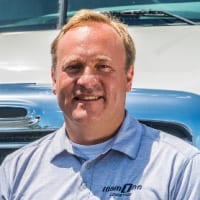
Page Siplon Prior to joining TeamOne Logistics, Siplon served as the Executive Director of the Georgia Center of Innovation for Logistics, the State’s leading consulting resource for fueling logistics industry growth and global competitiveness. For over a decade, he directly assisted hundreds of companies to overcome challenges and capitalize on opportunities related to the movement of freight. During this time, Siplon was also appointed to concurrently serve the State of Georgia as Director of the larger Centers of Innovation Program, in which he provided executive leadership and vision for all six strategic industry-focused Centers. As a frequently requested keynote speaker, Siplon is called upon to address a range of audiences on unique aspects of technology, workforce, and logistics. This often includes topics of global and domestic logistics trends, supply chain visibility, collaboration, and strategic planning. He has also been quoted as an industry expert in publications such as Forbes, Journal of Commerce, Fortune, NPR, Wall Street Journal, Reuters, American Express, DC Velocity, Area Development Magazine, Site Selection Magazine, Inbound Logistics, Modern Material Handling, and is frequently a live special guest on SiriusXM’s Road Dog Radio Show. Siplon is an active industry participant, recognized by DC Velocity Magazine as a “2012 Logistics Rainmaker” which annually identifies the top-ten logistics professionals in the Nation; and named a “Pro to Know” by Supply & Demand Executive Magazine in 2014. Siplon was also selected by Georgia Trend Magazine as one of the “Top 100 Most Influential Georgians” for 2013, 2014, and 2015. He also serves various industry leadership roles at both the State and Federal level. Governor Nathan Deal nominated Siplon to represent Georgia on a National Supply Chain Competitiveness Advisory Committee, where he was appointed to a two-year term by the U.S. Secretary of Commerce and was then appointed to serve as its vice-chairman. At the State level, he was selected by then-Governor Sonny Perdue to serve as lead consultant on the Commission for New Georgia’s Freight and Logistics Task Force. In this effort, Siplon led a Private Sector Advisory Committee with invited executives from a range of private sector stakeholders including UPS, Coca-Cola, The Home Depot, Delta Airlines, Georgia Pacific, CSX, and Norfolk Southern. Siplon honorably served a combined 12 years in the United States Marine Corps and the United States Air Force. During this time, he led the integration of encryption techniques and deployed cryptographic devices for tactically secure voice and data platforms in critical ground-to-air communication systems. This service included support for all branches of the Department of Defense, multiple federal security agencies, and aiding NASA with multiple Space Shuttle launches. Originally from New York, Siplon received both a bachelor’s and master’s degree in electrical and computer engineering with a focus on digital signal processing from the Georgia Institute of Technology. He earned an associate’s degree in advanced electronic systems from the Air Force College and completed multiple military leadership academies in both the Marines and Air Force. Siplon currently lives in Cumming, Georgia (north of Atlanta), with his wife Jan, and two children Thomas (19) and Lily (15).
